From Zimbabwe to New Mexico, Sierra Leone to Montana, and Tunisia to the Peach State of Georgia, the Carter Center’s recent election observation work has spanned the globe. Learn more »
I spent the 2024 U.S. general election in the mountains — but not hiking or camping. I was in Montana supporting the Carter Center’s local partner, the Montana Election Observation Initiative. MTEOI is a nonpartisan network seeking to increase trust in the state’s elections. Together, we introduced a new way for Montanans to engage in the electoral process. Learn more »
When incumbent Nicolas Maduro falsely claimed victory in Venezuela’s presidential election in July, The Carter Center was the only international observer organization on hand to raise the alarm. Learn more »
The Carter Center has a hard-earned reputation as a fair, impartial observer of elections overseas. It brought its electoral expertise to a U.S. election for the first time by observing Georgia’s post-election risk-limiting audit in 2020, and its domestic focus has grown ever since. Learn more »
I met Gary Mason right after the violent 2017 Unite the Right rally in Charlottesville that shocked the country: “Tom, this looks terribly familiar, so it does,” he said in his Belfast accent. “What can we do?” Learn more »
Being an election official is hard. Not only is there a never-ending stream of deadlines, but there also is a constant crush of complaints and criticism that sometimes escalates to stalking or death threats. Learn more »
Published by Tonya Wichman, director of the Board of Elections in Defiance County, Ohio.
I am an election official in rural Defiance County, Ohio. The way politics are in America right now, my job is very challenging much of the time. Last year, I almost quit. I needed a fresh perspective. Learn more »
The Carter Center observed or prepared to observe elections in Sierra Leone, the Democratic Republic of the Congo, and Liberia this year and continued to work on improving the political atmosphere in the United States. Learn more »
The Carter Center recently sent election teams to the United States, Tunisia, and Brazil. Each situation was different, each required a distinct approach, and each had a unique result. Learn more »
Emmanuel Zulu is a young political activist in Zambia with strong convictions and sturdy shoes. In November 2021, Zulu embarked on a nine-day, 255-mile walk from his hometown of Chingola to the capital city of Lusaka to raise awareness about government accountability; transparency; and inclusion of youth, women, and people with disabilities in civic decision-making. Learn more »
Written by Jennifer Roberts, North Carolina Democracy Resilience Network
Many thanks to the League of Women Voters of North Carolina for recognizing the work of the bipartisan N.C. Trusted Elections Tour, organized by myself and Bob Orr and funded by The Carter Center. Our close partnership with the League of Women Voters in this endeavor guaranteed its success and helped pave the way for safe, secure, and peaceful elections in our state in 2022. Learn more »
Last week, logic and accuracy testing of tabulation or counting equipment took place in all 15 Arizona counties ahead of the court-mandated recount of races for attorney general, superintendent of public instruction, and state representative of Legislative District 13 in Maricopa County. Learn more »
By Michael Scholtens, data analyst, Democracy Program
The turmoil at Twitter following Elon Musk’s takeover has shaken the foundation of the global social media landscape. As one of social media’s pillars veers toward possible collapse, some of its users and content are scattering across the internet. It’s too soon to say whether Twitter will be unseated as one of the giants of social media, but users are searching for alternatives at a higher rate than at any point since the platform’s founding. Learn more »
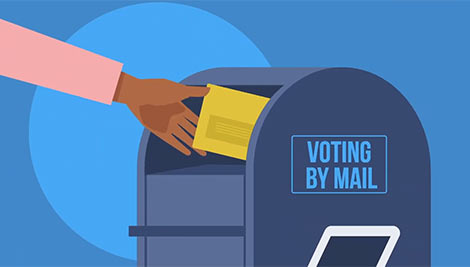 Grab your lunch and join us for 10-minute interviews with election experts on some of the most pressing U.S. election issues.
Learn more »
Grab your lunch and join us for 10-minute interviews with election experts on some of the most pressing U.S. election issues.
Learn more »
Municipal and regional elections don’t usually attract much interest outside the country where they’re taking place, but when Venezuelans went to the polls last November to choose their next governors and mayors, the world was paying close attention. Learn more »
Barbara Smith, vice president of the Carter Center’s peace programs, says she was born to her line of work. Her mother is from Germany and taught her the value of international perspectives. Her father was in the military and ingrained in her the importance of service. Learn more »
By Sarah E. Morris, head of instruction and engagement at the Emory University Libraries
The war in Ukraine is a terrible situation that is keeping many of us glued to our devices, looking for updates and ways to help Ukraine. Unfortunately, large amounts of misinformation, disinformation, and propaganda are swirling around, creating confusion and disruption. Learn more »
Russia has long treated Ukraine as a proving ground for testing its novel and destructive cyberweapons. In 2015, Russia launched a cyberattack on the power grid in Ukraine, plunging 230,000 civilians into darkness and cutting off power to homes, hospitals, and schools in the dead of winter. Repairs took months to complete. Two years later, Russia launched another attack that crippled government, financial, and energy institutions, shut down nuclear safety monitoring systems, and permanently erased public and private data. The attack spilled over Ukraine’s borders, disrupting private-sector entities such as Maersk, FedEx, and Merck and costing an estimated $10 billion. Learn more »
Fact checkers have a term for media sources that repeatedly share false or misleading content: misinformation repeat offenders. The Carter Center’s Digital Threats team studied the prevalence of misinformation repeat offenders in right- and left-leaning Facebook groups during the 2020 U.S. election cycle and published its findings in October in a report titled, "The Big Lie and Big Tech." Learn more »
 Two and a half years ago, recognizing that things that take place in the online world were increasingly having real-world consequences, The Carter Center launched the Digital Threats to Democracy Project.
Learn more »
Two and a half years ago, recognizing that things that take place in the online world were increasingly having real-world consequences, The Carter Center launched the Digital Threats to Democracy Project.
Learn more »
 Grab your lunch and join us for 10-minute interviews with election experts on some of the most pressing U.S. election issues.
Learn more »
Grab your lunch and join us for 10-minute interviews with election experts on some of the most pressing U.S. election issues.
Learn more »
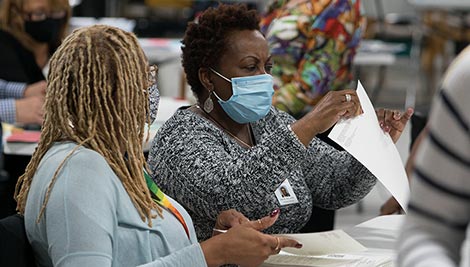 In November, the state of Georgia undertook the largest hand tally of election ballots ever performed in the United States. And The Carter Center had a front-row seat.
Learn more »
In November, the state of Georgia undertook the largest hand tally of election ballots ever performed in the United States. And The Carter Center had a front-row seat.
Learn more »
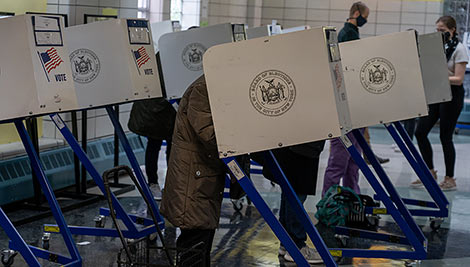 The 2020 U.S. election was like none before it. Polarization was at an all-time high, with many on both sides mistrusting each other and the process itself. The pandemic introduced further complications, challenging election officials to find ways to ensure accessibility while keeping voters safe. Because of this, The Carter Center chose to do something it had never done before—get involved in a U.S. election.
Learn more »
The 2020 U.S. election was like none before it. Polarization was at an all-time high, with many on both sides mistrusting each other and the process itself. The pandemic introduced further complications, challenging election officials to find ways to ensure accessibility while keeping voters safe. Because of this, The Carter Center chose to do something it had never done before—get involved in a U.S. election.
Learn more »
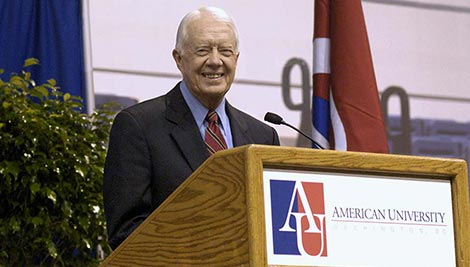 In 2005, former U.S. President Jimmy Carter and former Secretary of State James A. Baker III joined forces to chair the bipartisan Commission on Federal Election Reform.
Learn more »
In 2005, former U.S. President Jimmy Carter and former Secretary of State James A. Baker III joined forces to chair the bipartisan Commission on Federal Election Reform.
Learn more »
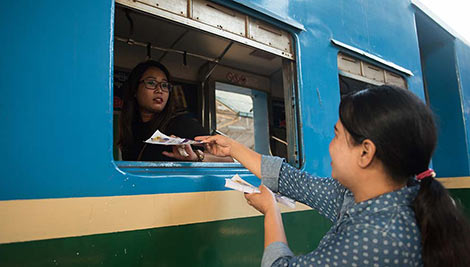 The United States was not the only country in the midst of election season this fall; many countries around the world held or will soon hold elections, and The Carter Center worked on three of them.
Learn more »
The United States was not the only country in the midst of election season this fall; many countries around the world held or will soon hold elections, and The Carter Center worked on three of them.
Learn more »
By David Carroll, director, Democracy Program
Engaging in the U.S. is more complicated than in other countries because we don’t have a centralized election administration – we have a patchwork of about 10,000 jurisdictions across 50 states. (That, by the way, is one of several areas in which the U.S. falls short of international election standards.) Learn more »
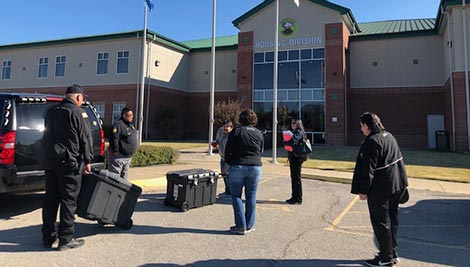 When North Dakota Democrats held their caucus in March, residents of the Fort Berthold Indian Reservation – which stretches over six counties and nearly a million acres – had just one designated spot to drop off ballots.
Learn more »
When North Dakota Democrats held their caucus in March, residents of the Fort Berthold Indian Reservation – which stretches over six counties and nearly a million acres – had just one designated spot to drop off ballots.
Learn more »
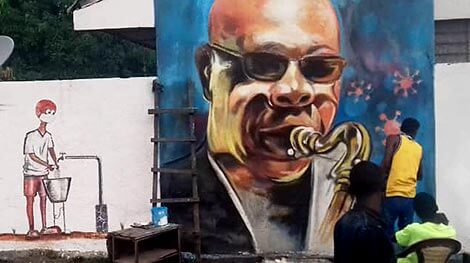 In the Democratic Republic of Congo, young artists with ties to The Carter Center are giving their time and talent to create paintings and songs that encourage people in their communities to prevent the spread of COVID-19.
Learn more »
In the Democratic Republic of Congo, young artists with ties to The Carter Center are giving their time and talent to create paintings and songs that encourage people in their communities to prevent the spread of COVID-19.
Learn more »
By Ambassador (ret.) Mary Ann Peters, chief executive officer
At this time of great challenges brought by the COVID-19 pandemic, I have been deeply moved by the commitment of our Carter Center staff to our mission to help the world’s poorest people. Indeed, our aim to wage peace, fight disease, and build hope has never been more urgent than it is today. Learn more »
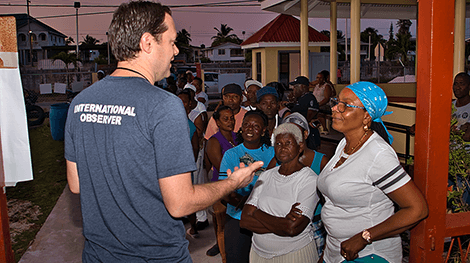 On March 2, citizens of Guyana went to the polls for what the country was calling “the mother of all elections.” Every election is important, of course, but this one was deemed especially so because five years ago, Exxon discovered massive amounts of oil off the coast of Guyana. The first barrels hit the market in January. Now this small, poor nation is poised to become a very rich one. And the country’s two major political parties – which are divided largely along ethnic lines – desperately want to control the coming wealth.
Learn more »
On March 2, citizens of Guyana went to the polls for what the country was calling “the mother of all elections.” Every election is important, of course, but this one was deemed especially so because five years ago, Exxon discovered massive amounts of oil off the coast of Guyana. The first barrels hit the market in January. Now this small, poor nation is poised to become a very rich one. And the country’s two major political parties – which are divided largely along ethnic lines – desperately want to control the coming wealth.
Learn more »
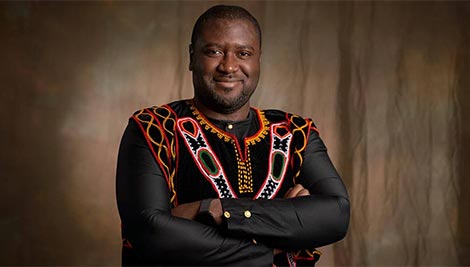 Thirteen years ago, The Carter Center opened the Human Rights House in Kinshasa, the capital of the Democratic Republic of Congo. It is home to a small team of staffers who perform a large amount of work – providing training and assistance to more than 100 local civil society organizations working on issues related to human rights, supporting a protection network that helps keep human rights defenders safe, and overseeing a variety of projects designed to spark youth engagement in democracy and human rights.
Learn more »
Thirteen years ago, The Carter Center opened the Human Rights House in Kinshasa, the capital of the Democratic Republic of Congo. It is home to a small team of staffers who perform a large amount of work – providing training and assistance to more than 100 local civil society organizations working on issues related to human rights, supporting a protection network that helps keep human rights defenders safe, and overseeing a variety of projects designed to spark youth engagement in democracy and human rights.
Learn more »
The Carter Center, with the support of UK Aid, helped prepare a range of voter education materials for the March 31 municipal elections in Yangon, Myanmar. A coalition of 10 civil society organizations, coordinated by our partner New Myanmar Foundation, is using the materials in its street campaign. These are Yangon’s first elections with universal suffrage, so many women and youth will be voting for the first time. Learn more »
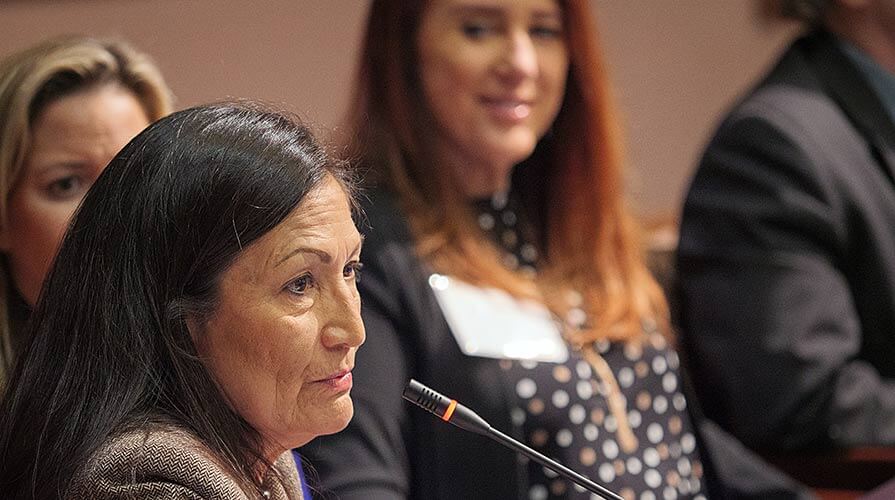 Their ancestors were the first to live on the land that came to be known as America, and yet many still have trouble exercising the most basic of American rights – the right to vote. Native Americans face a variety of barriers on their way to the polls, some of which seem almost unbelievable in 2019.
Learn more »
Their ancestors were the first to live on the land that came to be known as America, and yet many still have trouble exercising the most basic of American rights – the right to vote. Native Americans face a variety of barriers on their way to the polls, some of which seem almost unbelievable in 2019.
Learn more »
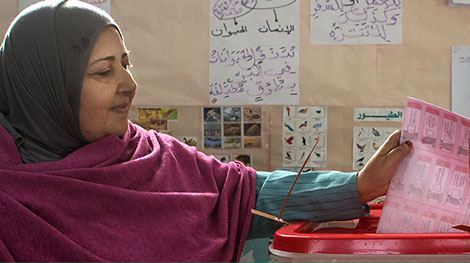 Building a peaceful world involves more than ending war. A peaceful world is one in which justice thrives, everyone’s rights are respected, and people have access to essentials. The Carter Center has dozens of programs and projects dedicated to making the dream of peace a reality. This slide show explores a handful of them.
Learn more »
Building a peaceful world involves more than ending war. A peaceful world is one in which justice thrives, everyone’s rights are respected, and people have access to essentials. The Carter Center has dozens of programs and projects dedicated to making the dream of peace a reality. This slide show explores a handful of them.
Learn more »
By Ambassador (ret.) Mary Ann Peters, chief executive officer
It’s no secret that this world is full of problems—some big and terrifying, some small and trivial. It may seem overwhelming at times, but it doesn’t have to be paralyzing. Learn more »
Last year, a Liberian woman named Beatrix decided she wanted to run for a seat in Liberia’s House of Representatives. But when she told her husband of her plan, he told her that she couldn’t, because she was a woman. Learn more »
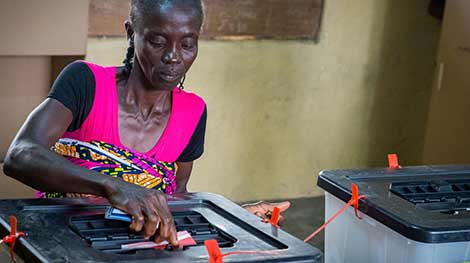 The year 2017 was a historic one for Liberia. “For the first time in most of their lives, Liberians saw power transfer from one democratically elected president to another,” said Jordan Ryan, vice president of the Carter Center’s peace programs. “This is something that hasn’t happened in Liberia since the 1940s. Other presidents were forced from power, died in office, or murdered in coups.
Learn more »
The year 2017 was a historic one for Liberia. “For the first time in most of their lives, Liberians saw power transfer from one democratically elected president to another,” said Jordan Ryan, vice president of the Carter Center’s peace programs. “This is something that hasn’t happened in Liberia since the 1940s. Other presidents were forced from power, died in office, or murdered in coups.
Learn more »
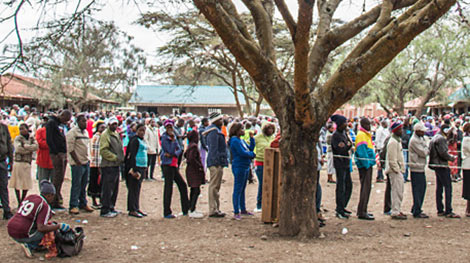 On Aug. 8, the Kenyan people stood for hours in long lines to cast their votes in presidential, parliamentary, and local races.
Despite their patience and determination, the underlying mood was tense.
Learn more »
On Aug. 8, the Kenyan people stood for hours in long lines to cast their votes in presidential, parliamentary, and local races.
Despite their patience and determination, the underlying mood was tense.
Learn more »
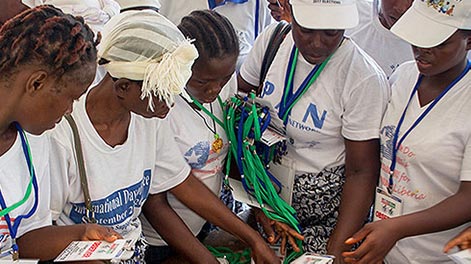 Every day in the weeks leading up to Liberia’s Oct. 10 election, scores of women wearing white t-shirts and blue-and-white skirts gathered in an open-air tent set up in a field in the capital city of Monrovia.
Learn more »
Every day in the weeks leading up to Liberia’s Oct. 10 election, scores of women wearing white t-shirts and blue-and-white skirts gathered in an open-air tent set up in a field in the capital city of Monrovia.
Learn more »
By Jason Kibiswa Bulambo, technical trainer
The Human Rights House operates three neighborhood Youth Houses, or Maisons des Jeunes — two in Kinshasa and one in Goma — where we work to encourage the positive and constructive participation of youth in public affairs. We provide a free space for debate, which encourages the free exchange of ideas on participatory democracy. Learn more »
By Jordan Ryan, vice president, peace programs
The Carter Center’s motto is “Waging Peace, Fighting Disease, Building Hope.” In these times, the task for peacemakers is urgent. Learn more »
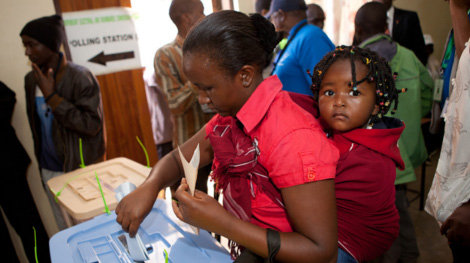 When Kenyans go to the polls Aug. 8 to choose their next president, election observers expect tensions to be running high. The race is a virtual repeat of the 2013 contest, again pitting challenger Raila Odinga against Uhuru Kenyatta, who won the last round by the narrowest of margins.
Learn more »
When Kenyans go to the polls Aug. 8 to choose their next president, election observers expect tensions to be running high. The race is a virtual repeat of the 2013 contest, again pitting challenger Raila Odinga against Uhuru Kenyatta, who won the last round by the narrowest of margins.
Learn more »
By Jordan Ryan, vice president, peace programs
In these times, the task for peacemakers is urgent. Learn more »
By Tye Tavaras
Until 1924’s Indian Citizenship Act, American Indians did not have the legal right to vote. Learn more »
In case you missed “Waging Peace in Turbulent Times” on April 13, 2017, an archived webcast of this event can be viewed below. Learn more »
By Jimmy Carter, co-founder, The Carter Center
After leaving the White House, Rosalynn and I searched our hearts for ways to use our unique position to help those less fortunate around the world. We knew that two issues were of paramount importance: advancing peace and preventing human suffering. Learn more »
By Jake Turner, intern, Latin America and Caribbean Program
As an intern in the Latin America and Caribbean Program, I had the opportunity to be part of Colombia’s domestic election observation to witness Colombians voting abroad on Oct. 2 in a plebiscite to approve the peace accord between the government and the Marxist rebel group FARC. Our assignment was to observe the vote at the consulate in Atlanta. Learn more »
In case you missed “Observing U.S. Elections” on Oct. 13, 2016, an archived webcast of this event can be viewed below. Learn more »
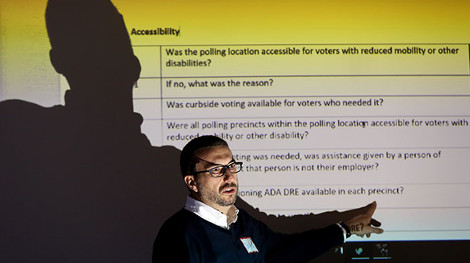 Members of the League of Women Voters of Ohio learn about election observation from Carter Center staff.
Learn more »
Members of the League of Women Voters of Ohio learn about election observation from Carter Center staff.
Learn more »
In advance of the U.S. presidential election of 2016, which will take place on Nov. 8, Davis-Roberts and Carroll answered questions on election observation in the United States. Learn more »
 As the Democratic Republic of Congo edges toward its next national election — slated for November, though the timing is in question — one thing is clear: The nation’s young people will play an important role.
Learn more »
As the Democratic Republic of Congo edges toward its next national election — slated for November, though the timing is in question — one thing is clear: The nation’s young people will play an important role.
Learn more »
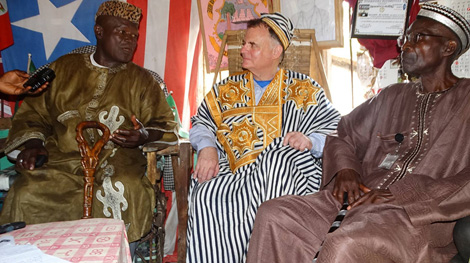 Jordan Ryan, vice president for peace programs, may be relatively new to The Carter Center, but his connection to President and Mrs. Carter dates back to the ’70s.
Learn more »
Jordan Ryan, vice president for peace programs, may be relatively new to The Carter Center, but his connection to President and Mrs. Carter dates back to the ’70s.
Learn more »
 ELMO (short for Election Monitoring) is a Carter Center created electronic data collection and analysis system. Since its introduction in 2011, ELMO has gradually rendered paper checklists obsolete. Equipped with ELMO, observers can submit their checklist data — with more detail than ever before — to headquarters in real time using touchscreen tablets or smartphones. Computers continuously aggregate the data for staff to analyze.
Learn more »
ELMO (short for Election Monitoring) is a Carter Center created electronic data collection and analysis system. Since its introduction in 2011, ELMO has gradually rendered paper checklists obsolete. Equipped with ELMO, observers can submit their checklist data — with more detail than ever before — to headquarters in real time using touchscreen tablets or smartphones. Computers continuously aggregate the data for staff to analyze.
Learn more »
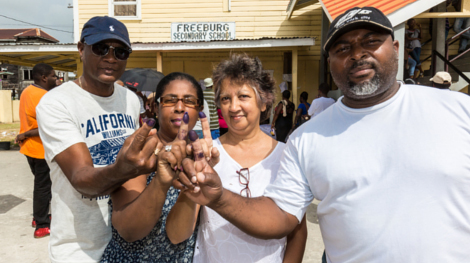 It's election day in Georgetown, Guyana, and taxi driver Kirk Embrack can't stop smiling. "I'm always an optimist," he says. "I would like to see Guyana be back to the days of old, when it was the breadbasket of the Caribbean."
Learn more »
It's election day in Georgetown, Guyana, and taxi driver Kirk Embrack can't stop smiling. "I'm always an optimist," he says. "I would like to see Guyana be back to the days of old, when it was the breadbasket of the Caribbean."
Learn more »
By Nandi Vanka, program assistant, Democracy Program
Impartial election observers help build confidence in the integrity of the voting process, and their assessments and recommendations help protect voters’ rights. Learn more »
Former U.S. President Jimmy Carter received back-to-back honors this week in appreciation of his efforts to promote peace and human rights. Learn more »
In case you missed “Stories from 100 Elections” at The Carter Center on Dec. 2, 2015, an archived webcast of this Conversations at The Carter Center event can be viewed below. Learn more »
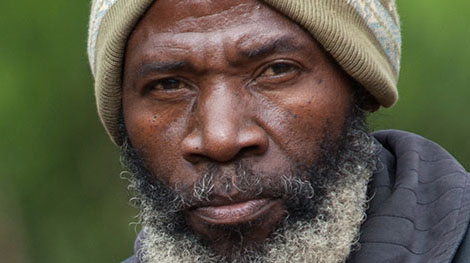 For five years, Christophe Kabwita has been trying to reclaim what is rightfully his while also trying to keep his family sheltered, fed, and healthy.
Learn more »
For five years, Christophe Kabwita has been trying to reclaim what is rightfully his while also trying to keep his family sheltered, fed, and healthy.
Learn more »
The people of Myanmar took a major step in moving their country toward democratic rule, turning out in large numbers to cast their ballots in November 2015 elections. Learn more »
Last May in Guyana, The Carter Center celebrated its 100th election observation mission. In this Q&A, former U.S. President Jimmy Carter, who led the Center’s first election mission to Panama in 1989 and 38 of the 99 that followed, discusses three decades of elections, remembering ones that made history, ones that put his life in danger, and one that brought tears to his eyes. Learn more »
After more than 50 years of oppressive military rule, the southeast Asian nation of Myanmar is emerging from isolation and taking its first tentative steps toward democracy. Learn more »
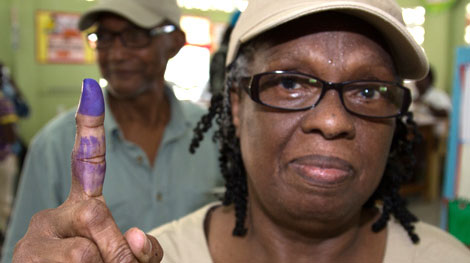 The Carter Center launched its fourth election observation mission in Guyana at an important time in the country's history.
Learn more »
The Carter Center launched its fourth election observation mission in Guyana at an important time in the country's history.
Learn more »
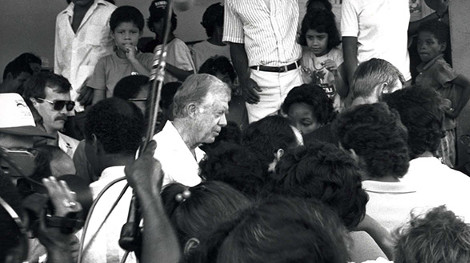 The chanting started soon after Jennie Lincoln and her partner entered the school in the Chiriqui province in Panama on May 7, 1989.
Learn more »
The chanting started soon after Jennie Lincoln and her partner entered the school in the Chiriqui province in Panama on May 7, 1989.
Learn more »
David Carroll, director of the Carter Center’s Democracy Program, has been in the field for about 40 of the Center’s election observation missions and helped manage another 30 or so from headquarters in Atlanta. On the eve of the Center’s 100th election mission, which will take place in Guyana on May 11, he sat down to explain how election observation works and how the field has changed since 1989, when the Center began its election work. Learn more »
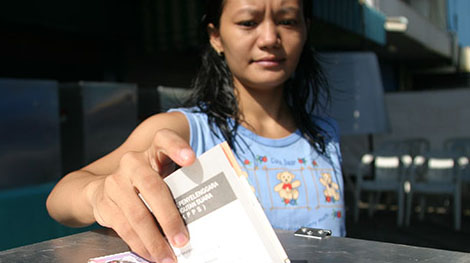 Twenty-six years ago, in May 1989, The Carter Center sent its first-ever team of election observers to Panama, where their work exposed General Manuel Noriega's scheme to falsify tally sheets to swing the elections in favor of his handpicked candidate. It established The Carter Center as a leader in what was then the still relatively new field of election observation.
Learn more »
Twenty-six years ago, in May 1989, The Carter Center sent its first-ever team of election observers to Panama, where their work exposed General Manuel Noriega's scheme to falsify tally sheets to swing the elections in favor of his handpicked candidate. It established The Carter Center as a leader in what was then the still relatively new field of election observation.
Learn more »
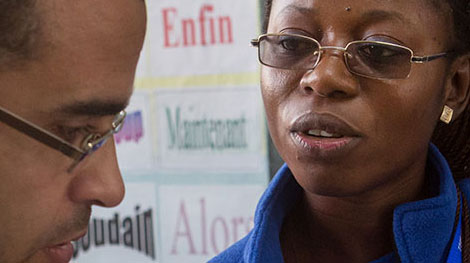 Many times, the best way to learn something is by doing it. That's why Cyrille Ebotoko and Marie Danielle Luyoyo Pwenika left their homes in the Democratic Republic of the Congo (DRC) in November to serve as Carter Center short-term observers in Tunisia's presidential elections.
Learn more »
Many times, the best way to learn something is by doing it. That's why Cyrille Ebotoko and Marie Danielle Luyoyo Pwenika left their homes in the Democratic Republic of the Congo (DRC) in November to serve as Carter Center short-term observers in Tunisia's presidential elections.
Learn more »
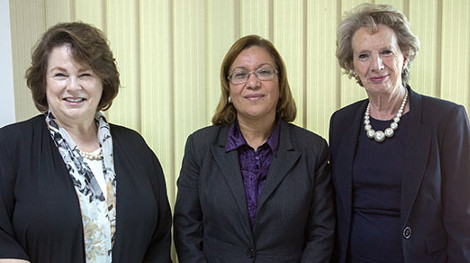 When student protesters took to the streets in Tunisia at the beginning of the Arab Spring, 55-year-old Kalthoum Kannou was by their side.
Learn more »
When student protesters took to the streets in Tunisia at the beginning of the Arab Spring, 55-year-old Kalthoum Kannou was by their side.
Learn more »
When Tunisians took to the polls on Sunday, Nov. 23, to elect a president of their choice in a genuine democratic election, a Carter Center team of 85 were on hand to observe the election process and report on its fairness. Learn more »
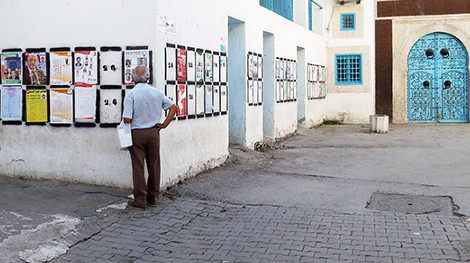 On Sunday, Nov. 23, Tunisians will do something they've never done before: go to the polls to elect the president of their choice in a genuine democratic election.
Learn more »
On Sunday, Nov. 23, Tunisians will do something they've never done before: go to the polls to elect the president of their choice in a genuine democratic election.
Learn more »
By Dr. John Stremlau, vice president, peace programs.
Last week, I was in Mozambique to observe the country’s fifth national election since the end of a bitter civil war that raged for 15 years following the country’s independence from Portugal in 1975. The election was mostly peaceful and far more competitive, transparent, and inclusive than earlier ones we observed. Learn more »
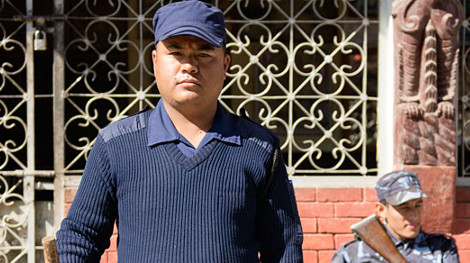 Mahendra Gwacha stood with pride as he listened to his supervisor's instructions at the Bagh Bhairab Temple in Kirtipur, Nepal, and then he and his fellow temporary police officers, or myadi prahari, got to work carrying tables and chairs from a nearby elementary school to transform the 900-year-old holy site to a polling place for the next day's constituent assembly election.
Learn more »
Mahendra Gwacha stood with pride as he listened to his supervisor's instructions at the Bagh Bhairab Temple in Kirtipur, Nepal, and then he and his fellow temporary police officers, or myadi prahari, got to work carrying tables and chairs from a nearby elementary school to transform the 900-year-old holy site to a polling place for the next day's constituent assembly election.
Learn more »
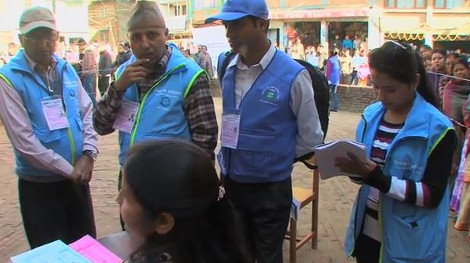
By Dr. John Stremlau, vice president, peace programs.
The Carter Center was pleased to partner with the Electoral Institute for Sustainable Democracy in Africa for a joint election observation mission to Madagascar’s Dec. 20 legislative and second-round presidential elections. Former Mauritius President Cassam Uteem, EISA Executive Director Dr. Denis Kadima, and I co-led the delegation. Learn more »
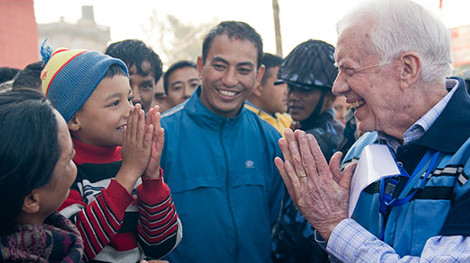 After casting her ballot this morning in Bhaktapur, 33-year-old Sangita Shrestha felt joy, but the feeling was tempered by a stern message she had for those who will be elected to Nepal's new constituent assembly, "Do your job properly and draft a new constitution as soon as possible."
Learn more »
After casting her ballot this morning in Bhaktapur, 33-year-old Sangita Shrestha felt joy, but the feeling was tempered by a stern message she had for those who will be elected to Nepal's new constituent assembly, "Do your job properly and draft a new constitution as soon as possible."
Learn more »
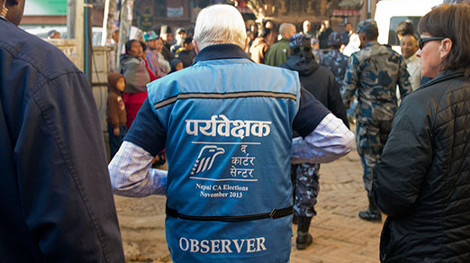 Voter turnout was high as Nepalis defied strikes and scattered violence leading up to Nepal's Nov. 19 constituent assembly election. The Carter Center, which has maintained a team of election observers in Nepal since 2007, deployed 66 observers from 31 countries to provide an independent and impartial assessment of this election process and ensure voting was transparent, credible, and fair.
Learn more »
Voter turnout was high as Nepalis defied strikes and scattered violence leading up to Nepal's Nov. 19 constituent assembly election. The Carter Center, which has maintained a team of election observers in Nepal since 2007, deployed 66 observers from 31 countries to provide an independent and impartial assessment of this election process and ensure voting was transparent, credible, and fair.
Learn more »
Carter Center expert David Pottie explains the importance of Nepal’s upcoming election and the role of Carter Center observers. Learn more »
The Nobel Peace Prize, the playwright Henrik Ibsen, the pop group A-ha — this was pretty much the extent of my knowledge about Norway until recently. But this summer, The Carter Center was invited by the Kingdom of Norway to observe their Internet voting trials in connection with this year’s parliamentary elections, which took place on Monday, Sept. 9. With a first visit in July, I have since learned a great deal more. Learn more »
Watch the Carter Center’s Far Western Region team observing voter registration for upcoming national and local elections in Nepal and discussing their work. Since 2009, The Carter Center has monitored and reported on issues related to Nepal’s peace process. The Center’s long-term observers are deployed throughout the country and often travel to remote communities to gain an understanding of local perspectives. Learn more »
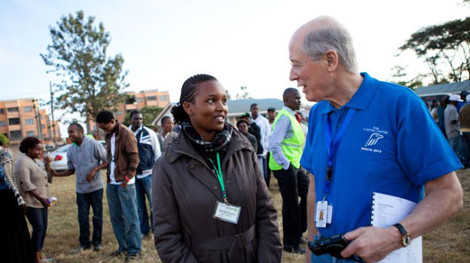 In 2008, Audrey Kasandi remembers traveling to school in a convoy escorted by armed police for safety, and seeing burned down shells of houses and tent villages stretched across fields full of internally displaced people in Kenya's Rift Valley as the country recoiled from post-election violence. Yet when opportunity arose to serve as deputy presiding officer of a polling station in March 2013, she jumped at the chance despite her fears.
Learn more »
In 2008, Audrey Kasandi remembers traveling to school in a convoy escorted by armed police for safety, and seeing burned down shells of houses and tent villages stretched across fields full of internally displaced people in Kenya's Rift Valley as the country recoiled from post-election violence. Yet when opportunity arose to serve as deputy presiding officer of a polling station in March 2013, she jumped at the chance despite her fears.
Learn more »
By Ben Dunant, Carter Center election observer, Nepal
We sat within walls of mud and thatch that warped gently into corners that flaked at the seams, cross-legged on thick carpets with woven Tibetan patterns. Our hosts in the village of Sikles presented us with local food that arrived in portion after portion, all accompanied by steamy hot glasses of raksi, the milky-colored spirit distilled from harvested millet. Learn more »
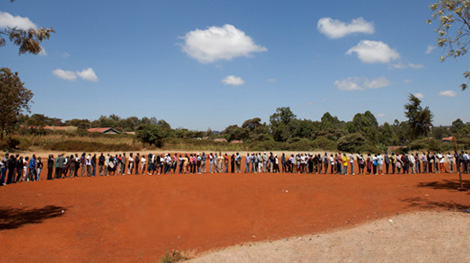 Carter Center election observers in Kenya reported longs lines outside many polling stations on March 4, some nearly a kilometer long, and voters waited in lines for up to six hours or more.
Learn more »
Carter Center election observers in Kenya reported longs lines outside many polling stations on March 4, some nearly a kilometer long, and voters waited in lines for up to six hours or more.
Learn more »
By Ellen Lust, a Carter Center political analyst in Jordan
Jordan’s Jan. 23 parliamentary elections are taking place in a climate of uncertainty, due to dissatisfaction with the pace of electoral reform and frustration with the state of the economy. In late-November there were demonstrations against the monarch, sparked by a sharp increase in gas prices. Learn more »
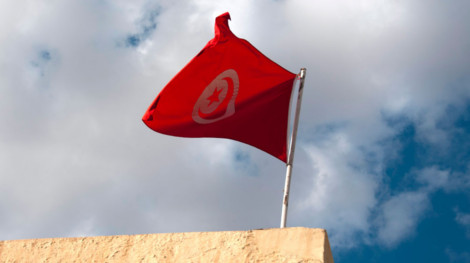 “In all of these countries, the path to democracy is full of challenges,” said Hrair Balian, director of the Conflict Resolution Program at the Center. “The successful outcome will depend on the level of inclusiveness and tolerance of the new orders being created.”
Learn more »
“In all of these countries, the path to democracy is full of challenges,” said Hrair Balian, director of the Conflict Resolution Program at the Center. “The successful outcome will depend on the level of inclusiveness and tolerance of the new orders being created.”
Learn more »
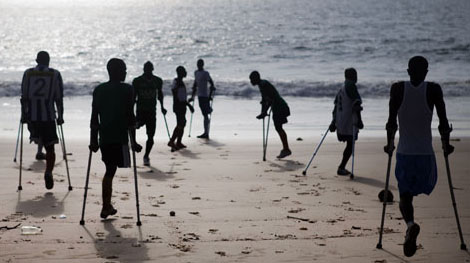 While other voters squeezed into polling stations and stood for hours in the Sierra Leone heat to cast ballots in the country's Nov. 17 general election, John Mussa moved straight to the head of the line. One advantage to having only one arm, he said, "is you don't have to wait in the queue to vote."
Learn more »
While other voters squeezed into polling stations and stood for hours in the Sierra Leone heat to cast ballots in the country's Nov. 17 general election, John Mussa moved straight to the head of the line. One advantage to having only one arm, he said, "is you don't have to wait in the queue to vote."
Learn more »
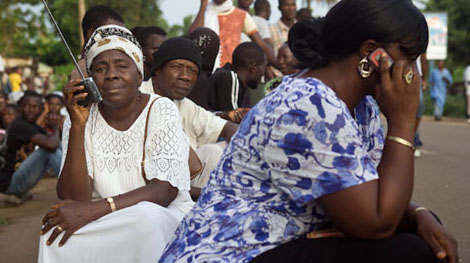 The Nov. 17, 2012, presidential and parliamentary elections were the first self-administered elections to be conducted in Sierra Leone since the end of the civil war in 2002, representing an important test for the country's democratic consolidation.
Learn more »
The Nov. 17, 2012, presidential and parliamentary elections were the first self-administered elections to be conducted in Sierra Leone since the end of the civil war in 2002, representing an important test for the country's democratic consolidation.
Learn more »
By Nick Jahr, long-term observer
Sierra Leone’s last election was a historic one: the first time the country’s opposition took power more or less peacefully. This also will be a landmark of another sort: the first election conducted solely …</p> Learn more »
Ahead of key Oct. 7 presidential elections in Venezuela, The Carter Center is conducting an independent study mission to follow the campaign, with political and electoral analysts interviewing political actors and technical experts on the ground. The Carter Center also will send a small group of experts for an informal presence on election day to interview political actors and voters. Learn more »
The Carter Center is pioneering new technology that allows observations from polling stations across a country to be transmitted to headquarters immediately, allowing a richer picture of an election to emerge in real time – key to being able to determine quicker if an election is credible. Learn more »
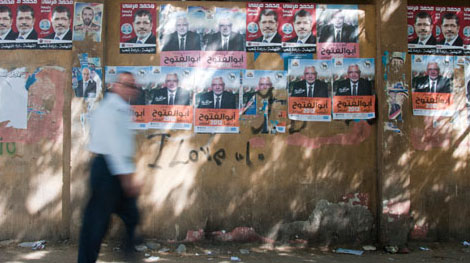 In June, Egyptians chose the first democratically elected president in the country's history, and despite the challenging circumstances of the process, many voters still felt the moment's importance.
Learn more »
In June, Egyptians chose the first democratically elected president in the country's history, and despite the challenging circumstances of the process, many voters still felt the moment's importance.
Learn more »
A limited Carter Center mission witnessed the June 16-17 runoff election for Egypt's president, with 90 witnesses from 36 countries deployed to follow polling, counting, and those parts of the tabulation processes to which the Center had access. Learn more »
Voting began Wednesday in Egypt, where more than 50 million registered voters may choose the first genuinely democratically elected president in the country’s history. In the Al-Sayeda Zeinab and Al-Sayeda Aisha neighborhoods of Cairo, hundreds of people lined up outside polling stations ahead of poll opening at 8 a.m. Learn more »
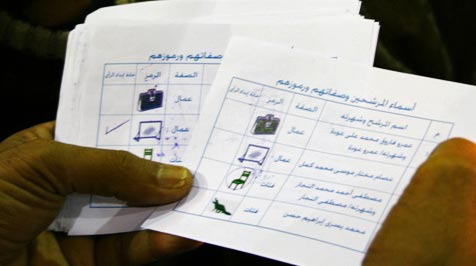 The Carter Center has deployed 22 international election witnesses to Egypt's upcoming May 23-24 presidential elections and will send a larger delegation of 80 witnesses from over 35 nations several days before the election, led by former U.S. President Jimmy Carter. Many of the Center's witnesses have been with The Carter Center in Egypt since November 2011 and have witnessed the lower and upper house parliamentary elections too.
Learn more »
The Carter Center has deployed 22 international election witnesses to Egypt's upcoming May 23-24 presidential elections and will send a larger delegation of 80 witnesses from over 35 nations several days before the election, led by former U.S. President Jimmy Carter. Many of the Center's witnesses have been with The Carter Center in Egypt since November 2011 and have witnessed the lower and upper house parliamentary elections too.
Learn more »
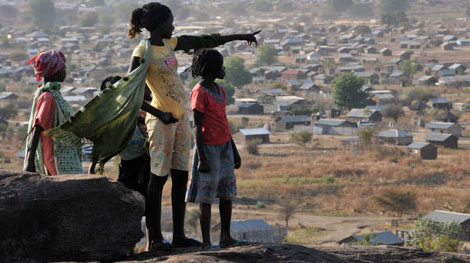 The Carter Center's peace programs have retained a presence in South Sudan after observing the 2011 referendum on independence in the hopes of contributing to a lasting peace and the establishment of strong democratic foundations.
Learn more »
The Carter Center's peace programs have retained a presence in South Sudan after observing the 2011 referendum on independence in the hopes of contributing to a lasting peace and the establishment of strong democratic foundations.
Learn more »
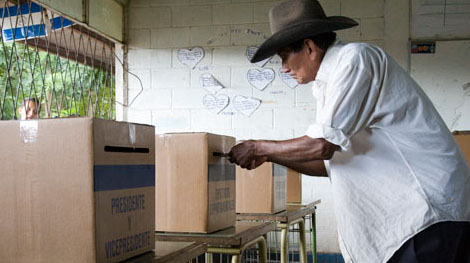 During 2012, The Carter Center celebrates three decades of waging peace, fighting disease, and building hope. This is the first in a series of anniversary features highlighting the Center's global impact since its founding.
Learn more »
During 2012, The Carter Center celebrates three decades of waging peace, fighting disease, and building hope. This is the first in a series of anniversary features highlighting the Center's global impact since its founding.
Learn more »
By Deborah Hakes, assistant director, Carter Center Office of Public Information
Former U.S. President Jimmy Carter joined a 40-member Carter Center delegation to witness the third phase of Egypt’s parliamentary elections Jan. 10-11. The delegation, deployed in Egypt since mid-November for the three-phase election, represents 21 countries. Learn more »
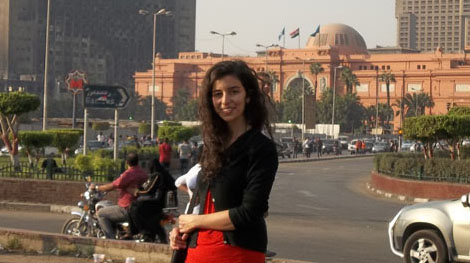 Read firsthand accounts from two of the Center's witnesses in Egypt - Nedra Cherif and Matt Hall - who were deployed to Alexandria and Fayoum governorates during the first round of voting.
Learn more »
Read firsthand accounts from two of the Center's witnesses in Egypt - Nedra Cherif and Matt Hall - who were deployed to Alexandria and Fayoum governorates during the first round of voting.
Learn more »
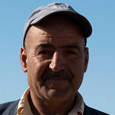 On Oct. 23, Haythem, 28, wrapped himself in a Tunisian flag, stood for four hours in a line that spanned as far as the eye could see on a street in downtown Tunis, and cast a vote for the first time in his life.
Learn more »
On Oct. 23, Haythem, 28, wrapped himself in a Tunisian flag, stood for four hours in a line that spanned as far as the eye could see on a street in downtown Tunis, and cast a vote for the first time in his life.
Learn more »
On Nov. 28, the Democratic Republic of the Congo (DRC) is holding its second democratic multi-party national elections since gaining independence in 1960, and the first to be administered solely by the country’s election commission. Elections in 2006 were overseen by the United Nations. Learn more »
By Max Lockie, Carter Center long-term observer
Carter Center long-term observer Max Lockie is based in Matadi, Democratic Republic of the Congo. The Center established an office in Kinshasa in August and deployed 10 long-term observers to seven provinces: Kinshasa, Bas-Congo, Oriental Province, North Kivu, South Kivu, Katanga, and Kasai Oriental. In September, the Center deployed another 10 long-term observers to the remaining provinces. Learn more »
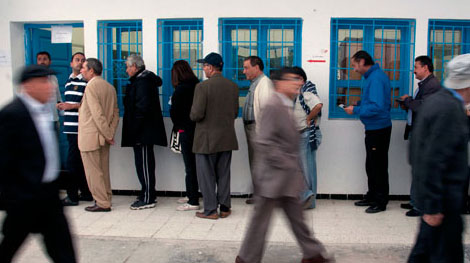 Long lines of Tunisians waited for hours to vote on Sunday to choose 217 members of a Constituent Assembly to draft a new constitution – many casting a ballot for the first time in their lives – in the country's first open and competitive election in decades.
Learn more »
Long lines of Tunisians waited for hours to vote on Sunday to choose 217 members of a Constituent Assembly to draft a new constitution – many casting a ballot for the first time in their lives – in the country's first open and competitive election in decades.
Learn more »
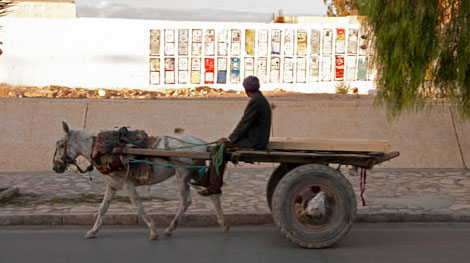 The Carter Center will observe the Oct. 23 vote in Tunisia - the first Arab Spring country to hold elections - for a constituent assembly to draft a new constitution. A selection of questions submitted online are answered below by Carter Center observers on the ground in Tunisia.
Learn more »
The Carter Center will observe the Oct. 23 vote in Tunisia - the first Arab Spring country to hold elections - for a constituent assembly to draft a new constitution. A selection of questions submitted online are answered below by Carter Center observers on the ground in Tunisia.
Learn more »
By Deborah Hakes, assistant director of public information for The Carter Center.
Deborah Hakes, assistant director of the Carter Center's Office of Public Information, reports from Liberia, where the Carter Center's international election observation team monitored the country's Oct. 11 elections. Learn more »
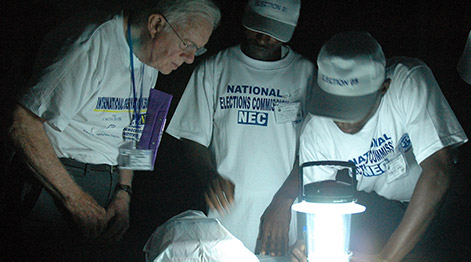 Presidential and legislative elections in Liberia on Oct. 11 will be a critical test for the country's transition from war to democratic and constitutional government. A Carter Center delegation will observe those elections, led by His Excellency General Dr. Yakubu Gowon, Nigeria's former head of state.
Learn more »
Presidential and legislative elections in Liberia on Oct. 11 will be a critical test for the country's transition from war to democratic and constitutional government. A Carter Center delegation will observe those elections, led by His Excellency General Dr. Yakubu Gowon, Nigeria's former head of state.
Learn more »
By Marwa Alkhairo, a Carter Center long-term election observer in northwest Tunisia and Bizerte
Marwa Alkhairo is a Carter Center long-term election observer in northwest Tunisia and Bizerte. "La bas alaik" and "ca va," means "are you well," one phrase said in Arabic, and one in French. These two greetings are indicative of the complexity that one immediately notices upon reaching northwest Tunisia. Learn more »
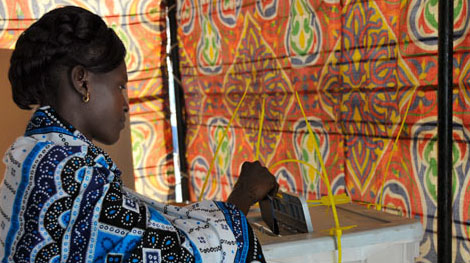 As the sun rose across Juba on Jan. 9, Lulogo Market area resident Ibrahim, 33, had already waited in line for hours to be among the first to vote in Southern Sudan's historic referendum on self-determination. He clutched a small radio with antenna pointed toward the sky to hear news fragments from BBC and local stations about the referendum.
Learn more »
As the sun rose across Juba on Jan. 9, Lulogo Market area resident Ibrahim, 33, had already waited in line for hours to be among the first to vote in Southern Sudan's historic referendum on self-determination. He clutched a small radio with antenna pointed toward the sky to hear news fragments from BBC and local stations about the referendum.
Learn more »
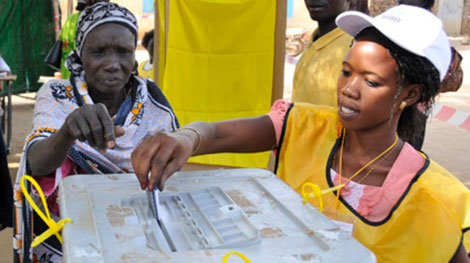 Carter Center observers witnessed the birth of what is expected to be the world's newest nation, following Southern Sudan's Jan. 9-15 referendum on self-determination, with an overwhelming majority--a reported 98.9 percent--voting for secession from Sudan.
Learn more »
Carter Center observers witnessed the birth of what is expected to be the world's newest nation, following Southern Sudan's Jan. 9-15 referendum on self-determination, with an overwhelming majority--a reported 98.9 percent--voting for secession from Sudan.
Learn more »
By Deborah Hakes, assistant director of public information for The Carter Center
Carter Center observers remain deployed across Sudan and in out-of-country voting locations as voting continues in the referendum on the self-determination of Southern Sudan. Here are images from across Juba on days one and two of voting. Learn more »
By Deborah Hakes, assistant director of public information for The Carter Center
More than 100 Carter Center observers will be deployed across Sudan and in eight out-of-country voting locations to witness voting in the referendum for the self-determination of Southern Sudan, as part of one of the Center’s largest observation missions. Most observers are currently being briefed in Juba, Sudan. Learn more »
The people of South Sudan will vote beginning Jan. 9 to decide whether they wish to remain unified with the North or to form a separate country. Hear more about the significance of the upcoming referendum, the challenges ahead, and the Carter Center's contribution to the process. Learn more »
By Deborah Hakes, assistant director of public information for The Carter Center
Outside a polling station in north Abidjan, Cote d’Ivoire, hundreds of people waited behind closed gates for voting to begin. Women and the elderly sat on chairs they had brought or on the ground. By the time our team of observers arrived at 10 a.m., three hours after polling should have begun, voters were growing anxious in the baking sun. Some had gotten there at 4 or 5 that morning. Learn more »
The Carter Center is the only American nongovernmental organization observing the historic presidential elections in Guinea and Cote d’Ivoire, and among the handful of international observers present, we have been deployed longer and more extensively than anyone else. These elections represent the first openly competitive contests for both nations since the end of French colonial rule a half-century ago. Learn more »
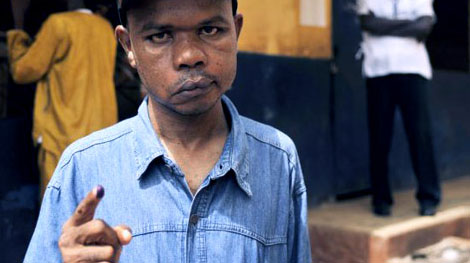 Quietly recalling the memory of people jumping from stadium walls to save their lives, and others falling like flies from the gunfire of soldiers, Bademba Diallo remembers thinking in the chaos of that afternoon: "you only die once."
Learn more »
Quietly recalling the memory of people jumping from stadium walls to save their lives, and others falling like flies from the gunfire of soldiers, Bademba Diallo remembers thinking in the chaos of that afternoon: "you only die once."
Learn more »
A groundbreaking project to identify and foster concensus on common standards for what constitutes a genuinely democratic election is the focus of a recently-published article in Democratization by Carter Center Democracy Program Assistant Director Avery Davis-Roberts and Director David Carroll. Learn more »
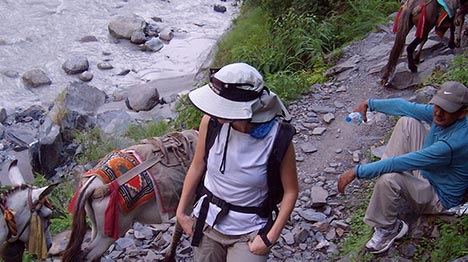 For the past two years, Carter Center observers have traveled around the country, assessing progress and reporting their findings as Nepal has undergone major transformation. Within the last five years, the Asian country has gone from monarchy to electing a constituent assembly charged with drafting a constitution.
Learn more »
For the past two years, Carter Center observers have traveled around the country, assessing progress and reporting their findings as Nepal has undergone major transformation. Within the last five years, the Asian country has gone from monarchy to electing a constituent assembly charged with drafting a constitution.
Learn more »
By Deborah Hakes, assistant director of public information for The Carter Center
Through the open second-story window of a mayor’s office outside Conakry, Guinea, came the sounds of hundreds of people passing by, some blowing on whistles and shouting for candidates, others riding in or on cars with horns and speakers blaring. Learn more »
By Peter Blair, a long-term observer for the Carter Center’s election observation mission in Guinea
Peter Blair is a long-term observer (LTO) for the Carter Center’s election observation mission in Guinea. Blair graduated with a degree in politics from the University of Nottingham, interned with the Carter Center’s Conflict Resolution Program, and worked as a media and communications assistant for Oxfam Ireland. Learn more »
By Avery Davis Roberts, assistant director, Carter Center Democracy Program, and Amber Davis, assistant project coordinator, Carter Center Democracy Program
The Carter Center deployed a limited observation mission to observe the use of voting technology to the Philippines’ May 10 election as part of its Democratic Election Standards project, which includes addressing the challenges of observing electronic voting technologies. Learn more »
By Deborah Hakes, assistant director of public information for The Carter Center
In Sudan, people across the country began voting on Sunday. Here are images from the first two days of balloting. This is the 78th election observed by The Carter Center. Learn more »
By Deborah Hakes, assistant director, Communications Department
Sudan’s historic elections, the country’s first in 24 years, begin on Sunday and will include nearly one week of voting and counting the ballots. The Carter Center deployed approximately 70 observers to Sudan’s 25 states. Campaigning officially ended today, and in Khartoum, election materials were packed up. Learn more »
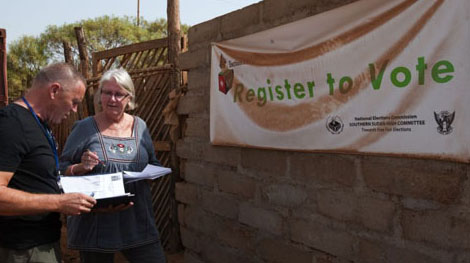 Carter Center long-term observers in Sudan, who have been deployed since August 2009, will soon be joined by a full delegation to observe the country's April elections. In teams of two, long-term observers have assessed pre-election developments, including voter registration in December.
Learn more »
Carter Center long-term observers in Sudan, who have been deployed since August 2009, will soon be joined by a full delegation to observe the country's April elections. In teams of two, long-term observers have assessed pre-election developments, including voter registration in December.
Learn more »
The Carter Center announced today that former U.S. President Jimmy Carter, former Algerian Foreign Minister and member of the Elders Lakhdar Brahimi, Judge Joseph Warioba, and Carter Center President and CEO Dr. John Hardman will lead the Center’s international election observation delegation to observe Sudan’s elections, which are scheduled to begin on April 11. Learn more »
Recent political events in Cote d’Ivoire introduced a serious disruption, hopefully temporary, of election preparations and demonstrated how easily the West African country could slide back into conflict. Elections there have been delayed several times; The Carter Center has been the only international election observation group present during the entire process and has deployed teams of observers for different phases. Learn more »
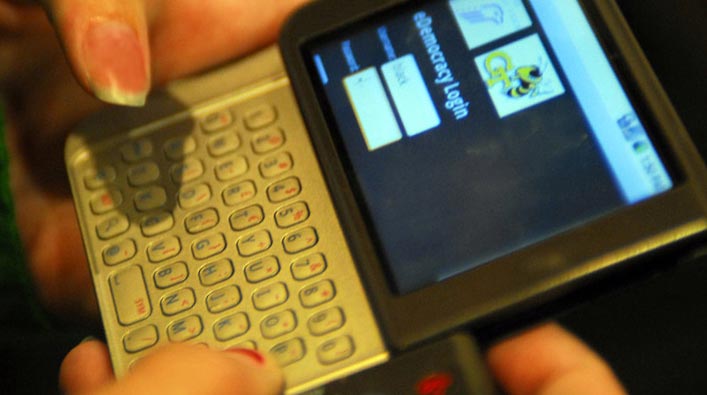 The Carter Center, long at the forefront of the election observation field, is working with students at Georgia Tech University to take the field forward again – using smartphone technology to streamline the observation process and compile the findings of observers in a fast, efficient, and transparent way.
Learn more »
The Carter Center, long at the forefront of the election observation field, is working with students at Georgia Tech University to take the field forward again – using smartphone technology to streamline the observation process and compile the findings of observers in a fast, efficient, and transparent way.
Learn more »
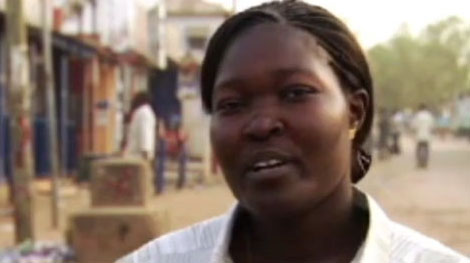 Merekaje Lorna can't wait to vote. A domestic election observer trained by The Carter Center in Sudan, she believes she and other young Sudanese have a responsibility to contribute to credible elections for the sake of the next generation, and as her country approaches its first multi-party elections in 24 years, she looks forward to being able to choose her leaders.
Learn more »
Merekaje Lorna can't wait to vote. A domestic election observer trained by The Carter Center in Sudan, she believes she and other young Sudanese have a responsibility to contribute to credible elections for the sake of the next generation, and as her country approaches its first multi-party elections in 24 years, she looks forward to being able to choose her leaders.
Learn more »
A small Carter Center delegation is in China this week to advance the Center’s programming efforts there. The Center has worked to help standardize the vast array of electoral procedures taking place in local communities and foster better governance for more than a decade, at the invitation of the Chinese government. Learn more »
Former U.S. President Jimmy Carter met with Sudanese officials to urge peace and stability in the nation as it prepares for its first multi-party elections in 24 years in April, which the Carter Center's international election observation team will monitor. Learn more »
On the twentieth anniversary of Nelson Mandela's release from a South African prison, Carter Center Vice President for Peace Programs John Stremlau writes for CNN.com that “Mandela must continue to embody the roles for South Africans that Washington, Lincoln, and King serve in protecting and advancing democracy in America. Learn more »
The Carter Center has deep roots in Nigeria, Africa’s most populous country and one plagued by poisonous politics. Jimmy Carter’s 1978 visit was the first time a U.S. president visited an African state. The Carter Center has worked there since 1988 to eradicate or control neglected diseases like Guinea worm and river blindness. Learn more »
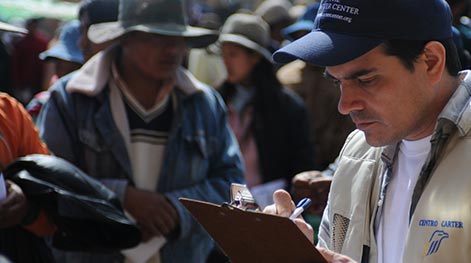 As the only foreign organization monitoring Bolivia's voter registration process, Carter Center long-term observers are witnessing a historic convergence of technology with indigenous cultures in one of South America's most diverse countries.
Learn more »
As the only foreign organization monitoring Bolivia's voter registration process, Carter Center long-term observers are witnessing a historic convergence of technology with indigenous cultures in one of South America's most diverse countries.
Learn more »
By Deborah Hakes, assistant director of public information for The Carter Center
Carter Center Bolivia Field Office Director Nicolás Fernández Bravo talks about the Center’s findings on election day and the challenges ahead for Bolivia. Learn more »
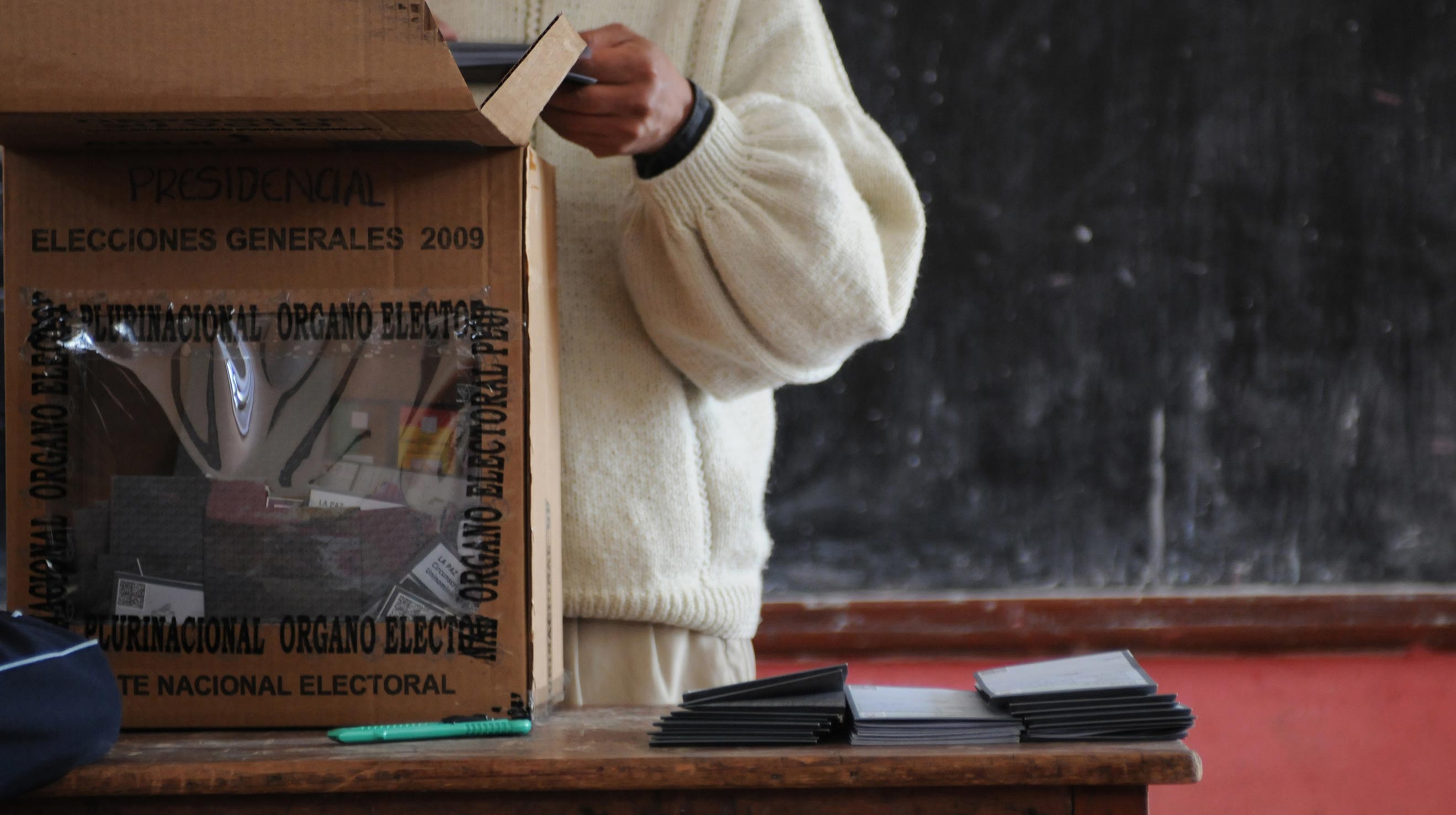 Carter Center Bolivia Field Office Director Nicolás Fernández Bravo talks about the Center's findings on election day and the challenges ahead for Bolivia
Learn more »
Carter Center Bolivia Field Office Director Nicolás Fernández Bravo talks about the Center's findings on election day and the challenges ahead for Bolivia
Learn more »
By Deborah Hakes, assistant director of public information for The Carter Center
Marcelo Varela, associate director of the Carter Center’s Americas Program, talks about election day in Bolivia. Learn more »
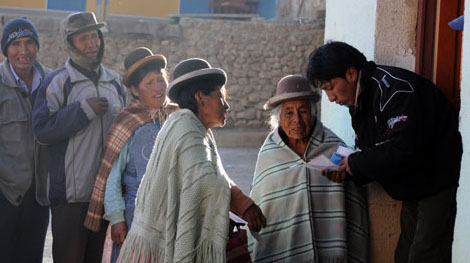 Marcelo Varela, associate director of the Carter Center's Americas Program, talks about election day in Bolivia.
Learn more »
Marcelo Varela, associate director of the Carter Center's Americas Program, talks about election day in Bolivia.
Learn more »
By Deborah Hakes, assistant director of public information for The Carter Center
Listen to Carter Center observers Daniel Barnes and Angela Lederach talk about the reception they have received so far as election observers in Bolivia. Learn more »
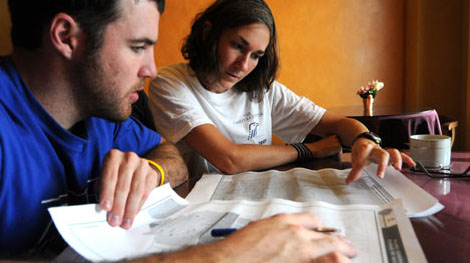 Listen to Carter Center observers Daniel Barnes and Angela Lederach talk about the reception they have received so far as election observers in Bolivia.
Learn more »
Listen to Carter Center observers Daniel Barnes and Angela Lederach talk about the reception they have received so far as election observers in Bolivia.
Learn more »
By Deborah Hakes, assistant director of public information for The Carter Center
Watch Barnes and Lederach as they talk about the day's activities and their preparation for election day. Carter Center observers Daniel Barnes and Angela Lederach deployed this morning to Cochabamba, a city that has …</p> Learn more »
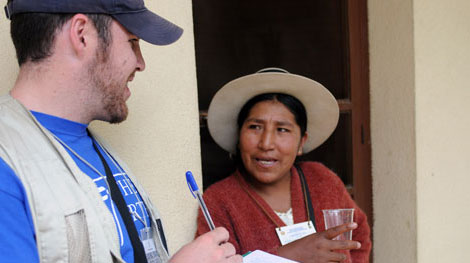 Carter Center observers Daniel Barnes and Angela Lederach deployed this morning to Cochabamba, a city that has grown immensely in recent years as people have immigrated from rural areas to find employment.
Learn more »
Carter Center observers Daniel Barnes and Angela Lederach deployed this morning to Cochabamba, a city that has grown immensely in recent years as people have immigrated from rural areas to find employment.
Learn more »
By Deborah Hakes, assistant director of public information for The Carter Center
In La Paz, Bolivia, colorful election graffiti and signs may be found on most available spaces along the winding road that leads upward to the city of El Alto. President Evo Morales, Bolivia’s first indigenous president, enjoys overwhelming popularity in La Paz. He is running for a second term in office, courtesy of an article in the country’s new constitution approved by referendum in January that allows him to seek re-election. Learn more »
By Deborah Hakes, assistant director of public information for The Carter Center
Today, on the last official day of campaigning before Sunday’s elections, rallies were held throughout Bolivia. Drummers and dancers (video), joining thousands of supporters (photos, below), show their enthusiastic support during a large rally in El Alto for Evo Morales. Learn more »
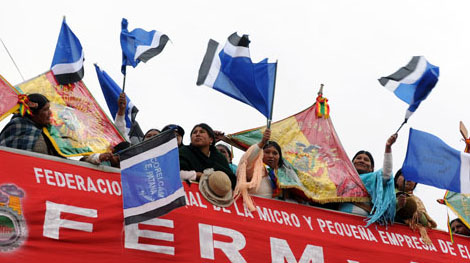 Marcelo Varela, associate director of the Carter Center's Americas Program, talks about the unique role of the Center's mission to observe Bolivia's elections on Sunday, Dec. 6.
Learn more »
Marcelo Varela, associate director of the Carter Center's Americas Program, talks about the unique role of the Center's mission to observe Bolivia's elections on Sunday, Dec. 6.
Learn more »
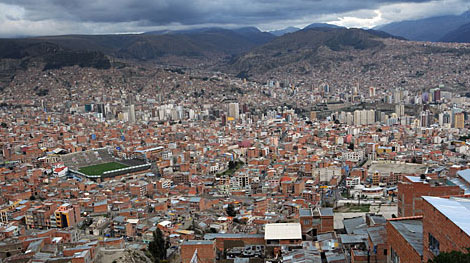 Today, on the last official day of campaigning before Sunday's elections, rallies were held throughout Bolivia.
Learn more »
Today, on the last official day of campaigning before Sunday's elections, rallies were held throughout Bolivia.
Learn more »
By Deborah Hakes, assistant director of public information for The Carter Center
Watch a brief video of Carter Center long-term observers talking about their work in Bolivia and the country’s new biometric voter registration process. Learn more »
Carter Center observers are gathering in La Paz, Bolivia, to be briefed ahead of their deployment to observe Sunday's presidential and legislative elections. Election results will determine who will implement and enforce the new constitution, approved by referendum in January 2009 Learn more »
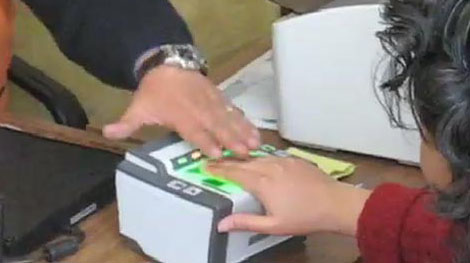 As the only foreign organization monitoring Bolivia's voter registration process, Carter Center long-term observers are witnessing a historic convergence of technology with indigenous cultures in one of South America's most diverse countries.
Learn more »
As the only foreign organization monitoring Bolivia's voter registration process, Carter Center long-term observers are witnessing a historic convergence of technology with indigenous cultures in one of South America's most diverse countries.
Learn more »
The initial vision for the Carter Center's Human Rights House was to provide both a space and forum for human rights activists in the Democratic Republic of the Congo, building on the momentum of the 2006 elections. Learn more »
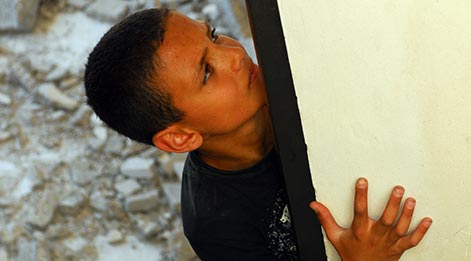 From the roof of his family's home in East Jerusalem within the walls of the Old City, Raed Sa'id points to the golden Dome of The Rock, which is glowing in the late-afternoon sun.
Learn more »
From the roof of his family's home in East Jerusalem within the walls of the Old City, Raed Sa'id points to the golden Dome of The Rock, which is glowing in the late-afternoon sun.
Learn more »
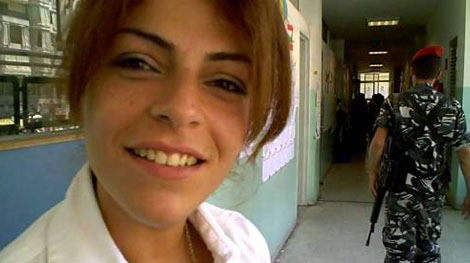 Lama Naja represents hope for Lebanon's political future. A politically independent young person in a country full of strong political passions and fierce party loyalties, she instead voted on June 7 for the people she thought may keep their campaign promises.
Learn more »
Lama Naja represents hope for Lebanon's political future. A politically independent young person in a country full of strong political passions and fierce party loyalties, she instead voted on June 7 for the people she thought may keep their campaign promises.
Learn more »
By Deborah Hakes, assistant director of public information for The Carter Center
A multinational Carter Center delegation observed Lebanon’s June 7 parliamentary elections, monitoring polling sites throughout the country’s 25 qadas (districts). Led by former U.S. President Jimmy Carter and former Yemini Prime Minister Abdulkareem Al-Eryani, the 60 member delegation included elected officials, electoral and human rights experts, regional specialists, and political and civic leaders from more than 20 countries in North America, Africa, Europe, South America, Asia, and the Middle East. Learn more »
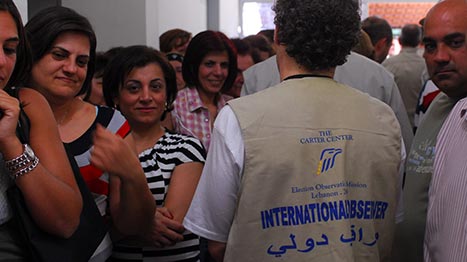 Election Day in Lebanon: Carter Center Observers Monitor Polling Sites
Learn more »
Election Day in Lebanon: Carter Center Observers Monitor Polling Sites
Learn more »
By Deborah Hakes, assistant director of public information for The Carter Center
Deborah Hakes is assistant director of public information for The Carter Center. For the past week and a half (and for weeks before I arrived), the Carter Center office for the elections was a scene of constant intense activity at all hours of a day. Learn more »
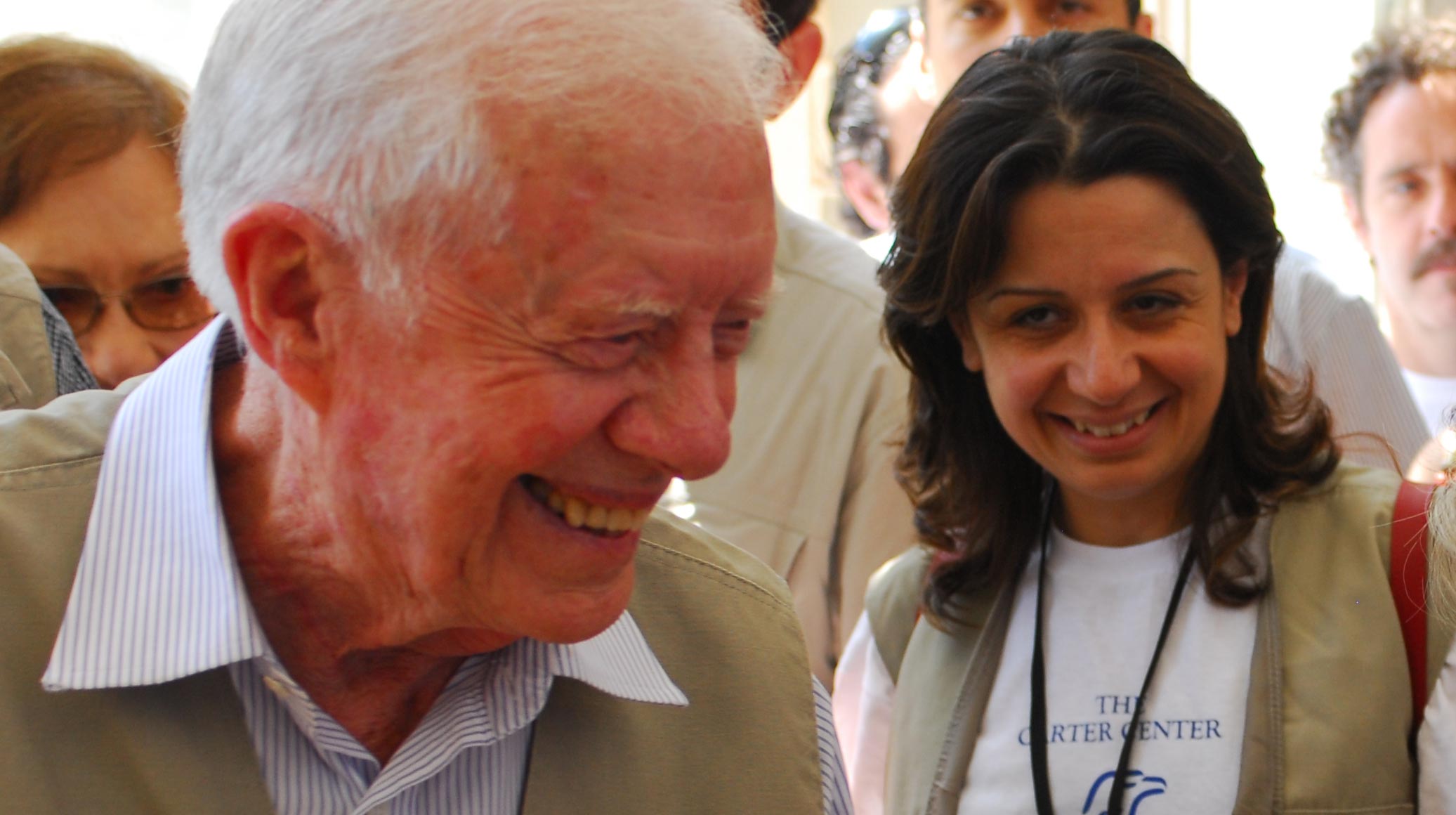 For the past week and a half (and for weeks before I arrived), the Carter Center office for the elections was a scene of constant intense activity at all hours of a day. Now the field staff has returned to their regular office outside the hotel, and Atlanta-based staff are flying home or to another field project.
Learn more »
For the past week and a half (and for weeks before I arrived), the Carter Center office for the elections was a scene of constant intense activity at all hours of a day. Now the field staff has returned to their regular office outside the hotel, and Atlanta-based staff are flying home or to another field project.
Learn more »
By Deborah Hakes, assistant director of public information for The Carter Center
I’ve been sharing my experiences with you from Lebanon for the past week and thought it was also important to share a few of the many other voices whose hard work made the election observation mission possible. Learn more »
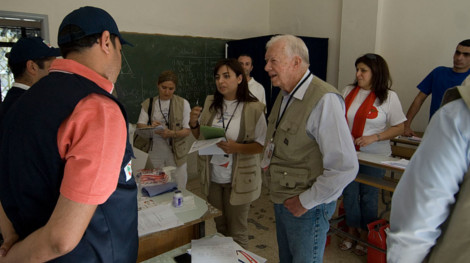 Lebanon held successful parliamentary elections on June 7, 2009, the results of which were accepted peacefully by both sides. The Carter Center deployed 60 observers from 23 countries to assess voting, counting, and tabulation processes, led by former U.S. President Jimmy Carter and former Prime Minister of Yemen Abdul-Kareem al–Eryani.
Learn more »
Lebanon held successful parliamentary elections on June 7, 2009, the results of which were accepted peacefully by both sides. The Carter Center deployed 60 observers from 23 countries to assess voting, counting, and tabulation processes, led by former U.S. President Jimmy Carter and former Prime Minister of Yemen Abdul-Kareem al–Eryani.
Learn more »
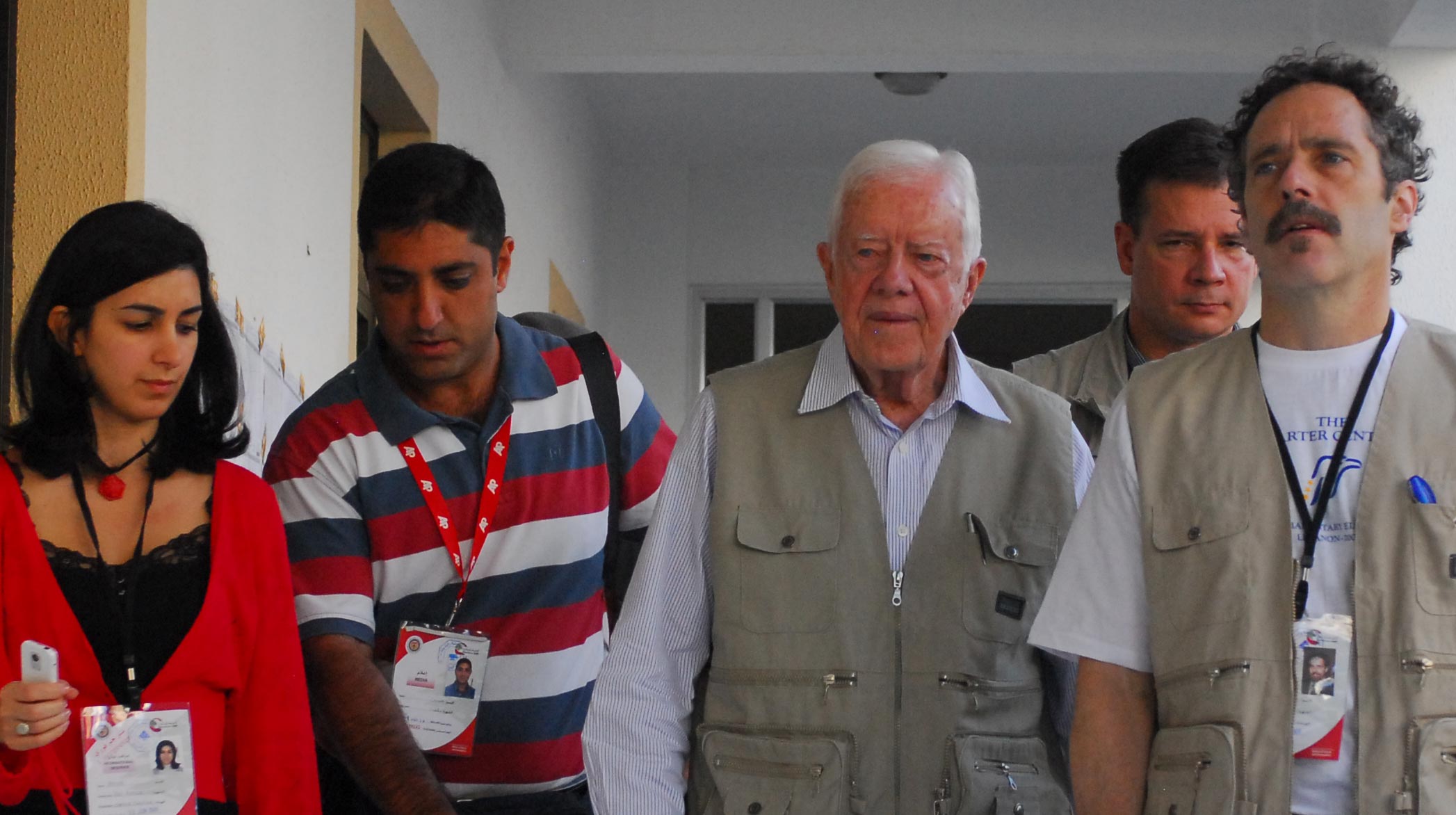 2009 Lebanon Parliamentary Elections - Deborah Hakes Blogs From Carter Center Election Observation Mission
Learn more »
2009 Lebanon Parliamentary Elections - Deborah Hakes Blogs From Carter Center Election Observation Mission
Learn more »
Things are wrapping up here for this phase of the Carter Center’s election observation mission to Lebanon. Our long-term observers will remain deployed to monitor the post-election processes. Learn more »
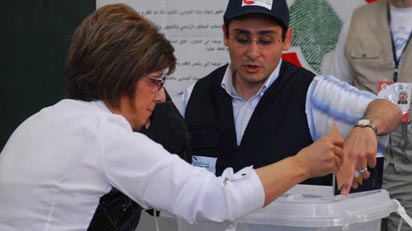 2009 Lebanon Parliamentary Elections - Deborah Hakes Blogs
From Carter Center Election Observation Mission
Learn more »
2009 Lebanon Parliamentary Elections - Deborah Hakes Blogs
From Carter Center Election Observation Mission
Learn more »
By Deborah Hakes, assistant director of public information for The Carter Center
The long lines surprised all of us. They wound down stairs and through the hallways of elementary schools, municipal buildings, and other polling sites where we visited. It made walking from polling station to polling station a very crowded affair. The voters seemed in good spirits though, often cheering and yelling “Jimmy Carter!’ when they realized just which international observers were there. Learn more »
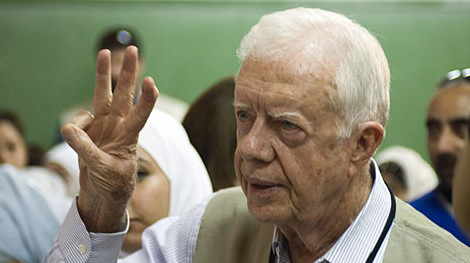 Lebanon Parliamentary Elections 2009- Deborah Hakes Blogs From Carter Center Election Observation Mission
Learn more »
Lebanon Parliamentary Elections 2009- Deborah Hakes Blogs From Carter Center Election Observation Mission
Learn more »
By Deborah Hakes, assistant director of public information for The Carter Center
It is the eve of Lebanon’s parliamentary elections and things seem quiet. Our observers were deployed yesterday, and they continue regular check-in calls to let us know that they are safe. Meanwhile, the core staff in Beirut are finalizing preparations for tomorrow – election day Learn more »
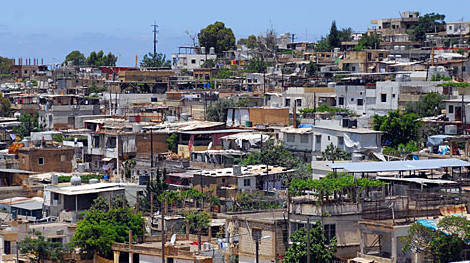 It is the eve of Lebanon's parliamentary elections and things seem quiet. Our observers were deployed yesterday, and they continue regular check-in calls to let us know that they are safe.
Learn more »
It is the eve of Lebanon's parliamentary elections and things seem quiet. Our observers were deployed yesterday, and they continue regular check-in calls to let us know that they are safe.
Learn more »
By Deborah Hakes, assistant director of public information for The Carter Center
Today, I headed south to Lebanon’s border with Hrair Balian, the director of the Conflict Resolution Program at The Carter Center, to be briefed by the United Nations Interim Forces in Lebanon (UNIFIL), and to see what the pre-election environment was like there. Learn more »
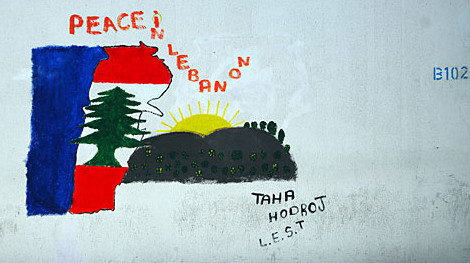 Today, I headed south to Lebanon's border with Hrair Balian, the director of the Conflict Resolution Program at The Carter Center, to be briefed by the United Nations Interim Forces in Lebanon (UNIFIL), and to see what the pre-election environment was like there.
Learn more »
Today, I headed south to Lebanon's border with Hrair Balian, the director of the Conflict Resolution Program at The Carter Center, to be briefed by the United Nations Interim Forces in Lebanon (UNIFIL), and to see what the pre-election environment was like there.
Learn more »
By Deborah Hakes, assistant director of public information for The Carter Center
Across Lebanon today, more than 11,000 polling station workers could cast their ballots early for the parliamentary elections. I traveled to Baabda, a town in the mountains southeast of Beirut, to watch the process. Baabda has six seats being contested in these elections, and per Lebanon’s complicated distribution of parliamentary seats by religion, three will be filled by Maronite Christians, two by Shia Muslims, and one by a Druze. Learn more »
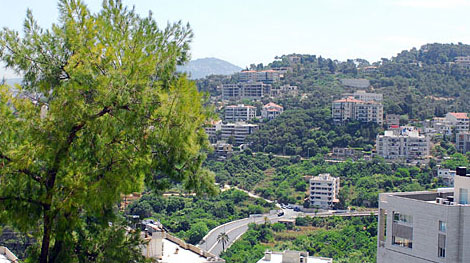 2009 Lebanon Parliamentary Elections - Deborah Hakes Blogs From Carter Center Election Observation Mission
Learn more »
2009 Lebanon Parliamentary Elections - Deborah Hakes Blogs From Carter Center Election Observation Mission
Learn more »
By Deborah Hakes, assistant director of public information for The Carter Center
I’ve only been in Beirut, Lebanon, for 24 hours, but I can already tell that the parliamentary elections to be held this coming Sunday are going to be a fascinating process, and I am thrilled to be a part of it. The world is watching what happens here, and I will get to see it firsthand. I’ll do my best to share what I see with you. Learn more »
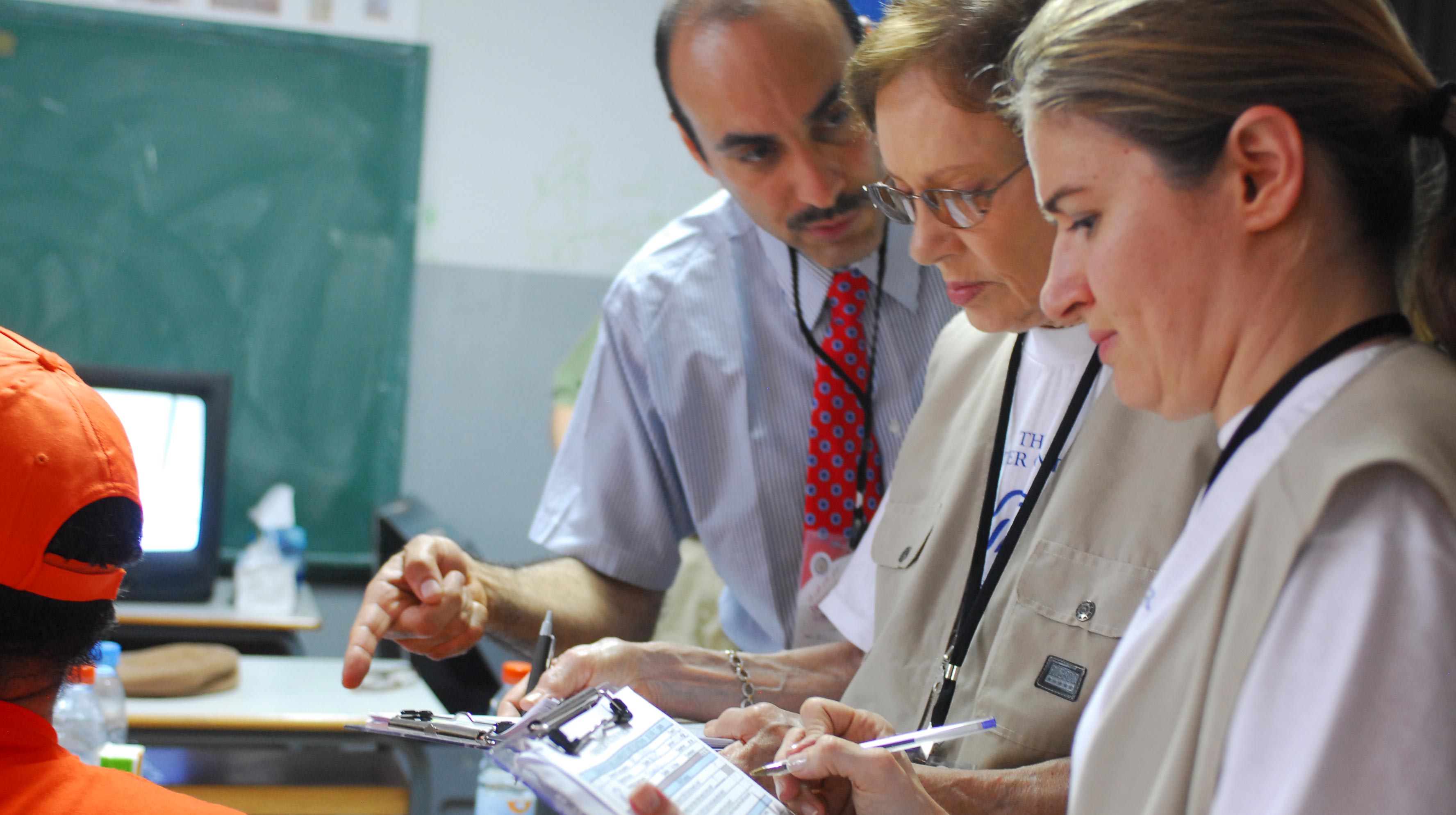 Join the Carter Center's Deborah Hakes, in Lebanon with the multinational Carter Center delegation, as she blogs daily about the sights and sounds "on the ground" and the importance of these elections for the country and region.
Learn more »
Join the Carter Center's Deborah Hakes, in Lebanon with the multinational Carter Center delegation, as she blogs daily about the sights and sounds "on the ground" and the importance of these elections for the country and region.
Learn more »
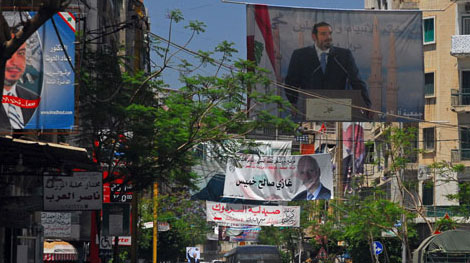 I've only been in Beirut, Lebanon, for 24 hours, but I can already tell that the parliamentary elections to be held this coming Sunday are going to be a fascinating process, and I am thrilled to be a part of it. The world is watching what happens here, and I will get to see it firsthand. I'll do my best to share what I see with you.
Learn more »
I've only been in Beirut, Lebanon, for 24 hours, but I can already tell that the parliamentary elections to be held this coming Sunday are going to be a fascinating process, and I am thrilled to be a part of it. The world is watching what happens here, and I will get to see it firsthand. I'll do my best to share what I see with you.
Learn more »
A multinational Carter Center delegation will observe Lebanon's June 7 parliamentary elections, monitoring polling sites throughout the country's 25 qadas (districts). Learn more »
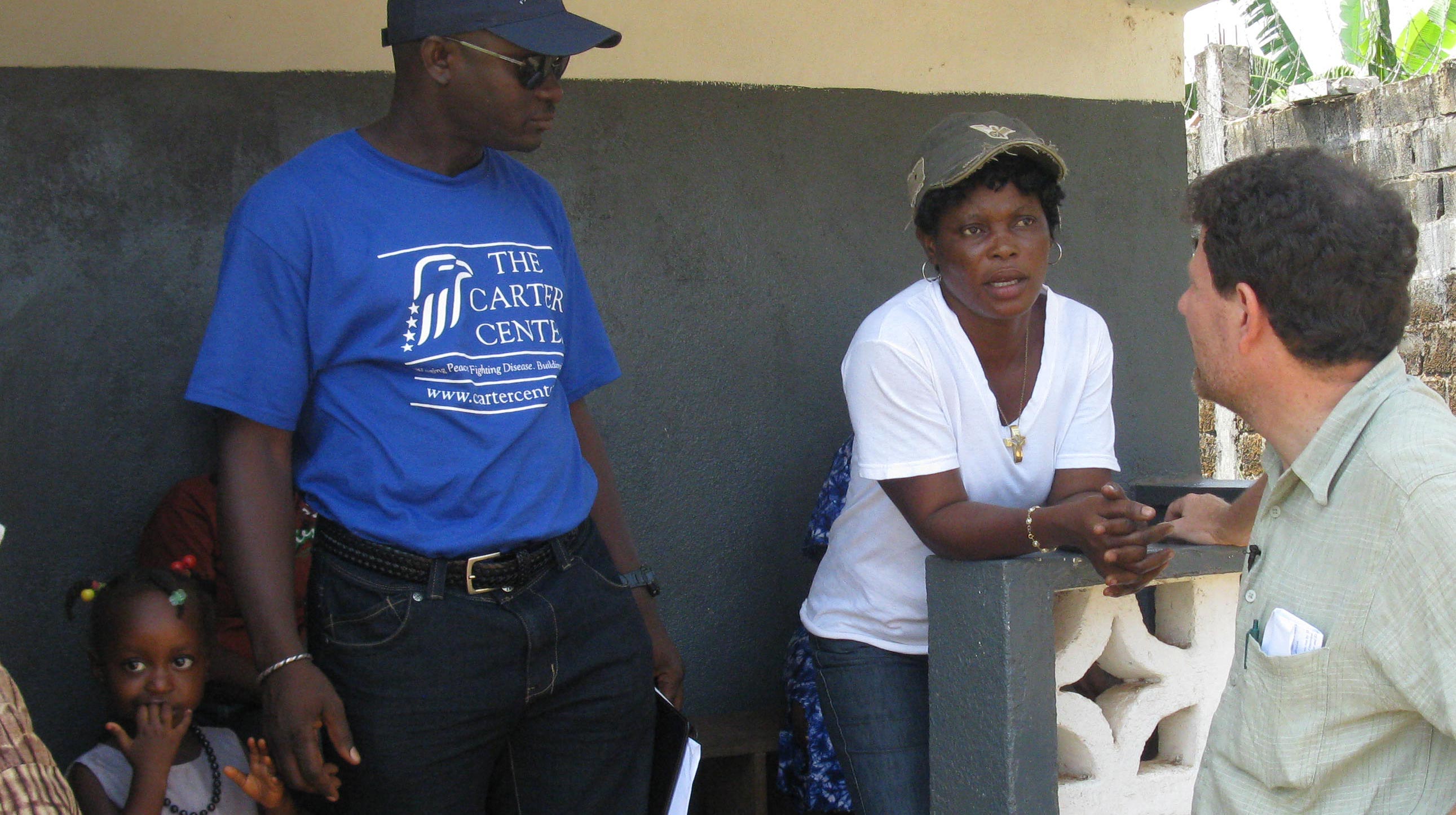 New York Times journalist Nicholas Kristof recently traveled to Liberia to explore progress against sexual and gender violence there and the impact of the Carter Center's rule of law project.
Learn more »
New York Times journalist Nicholas Kristof recently traveled to Liberia to explore progress against sexual and gender violence there and the impact of the Carter Center's rule of law project.
Learn more »
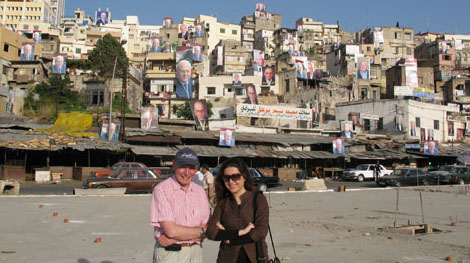 With accreditation from Lebanon's Ministry of the Interior and Municipalities, The Carter Center dispatched six long-term observers to Lebanon in March to monitor the electoral process leading to parliamentary elections on June 7, 2009.
Learn more »
With accreditation from Lebanon's Ministry of the Interior and Municipalities, The Carter Center dispatched six long-term observers to Lebanon in March to monitor the electoral process leading to parliamentary elections on June 7, 2009.
Learn more »
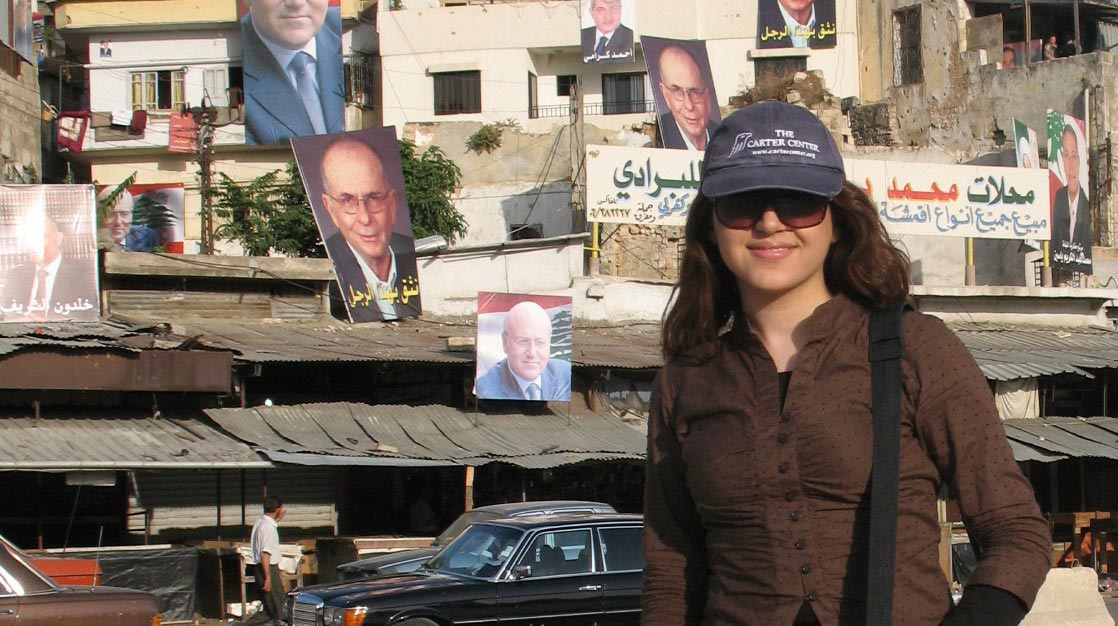 Marwa Alkhairo is a long-term observer in the Carter Center's election observation mission in Lebanon. This is her first election mission. She graduated from Georgetown University's School of Foreign Service with a master's degree in Arab studies in 2008 and certificate in refugee and humanitarian studies. She has had expansive experience in international NGOs, research institutes, film, and advocacy work as related to issues in the Arab world.
Learn more »
Marwa Alkhairo is a long-term observer in the Carter Center's election observation mission in Lebanon. This is her first election mission. She graduated from Georgetown University's School of Foreign Service with a master's degree in Arab studies in 2008 and certificate in refugee and humanitarian studies. She has had expansive experience in international NGOs, research institutes, film, and advocacy work as related to issues in the Arab world.
Learn more »
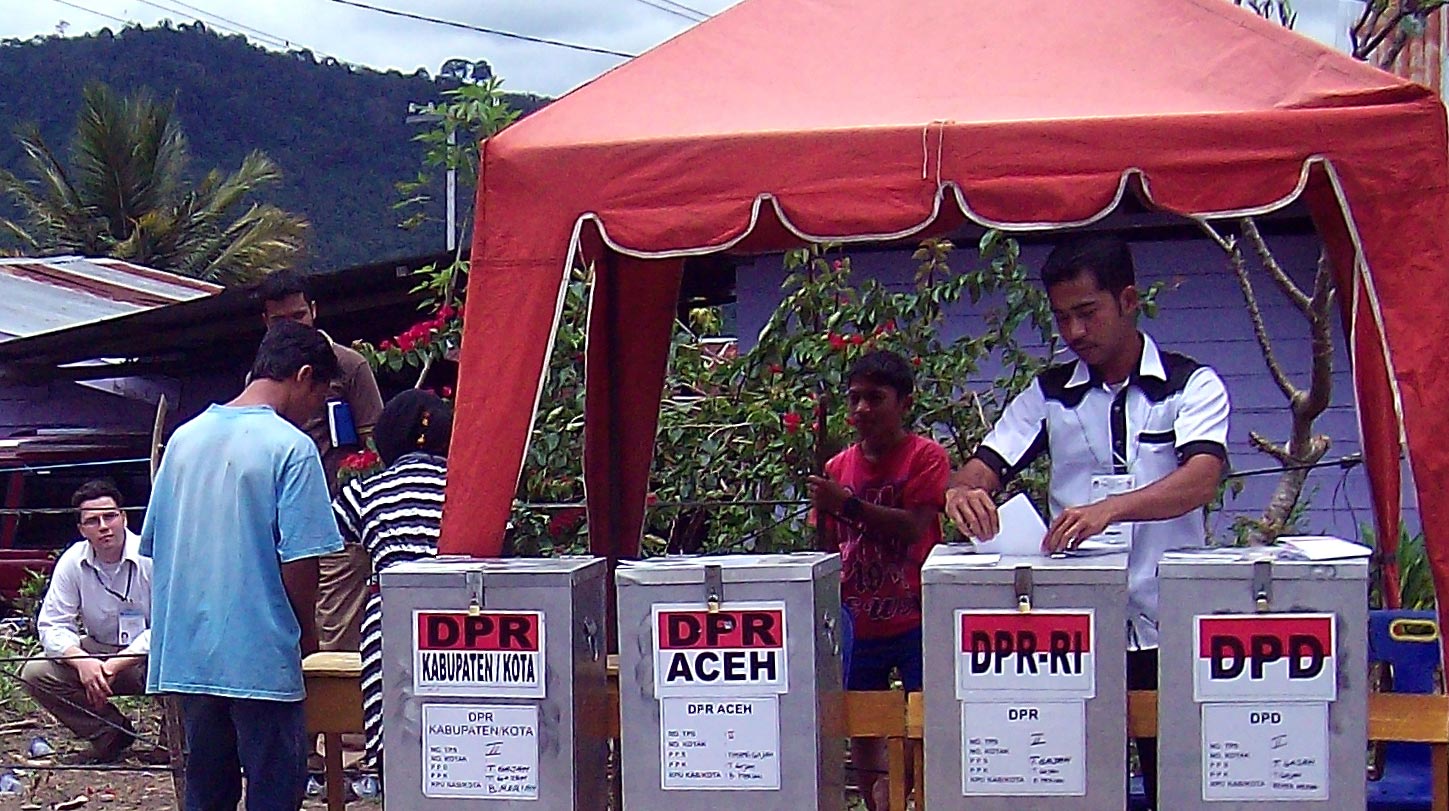 Long-term election observers Whitney Haring-Smith and Eunsook Jung have been deployed in Aceh since March 2009 as part of the Carter Center's mission to observe Indonesia's April 9, 2009 parliamentary elections.
Learn more »
Long-term election observers Whitney Haring-Smith and Eunsook Jung have been deployed in Aceh since March 2009 as part of the Carter Center's mission to observe Indonesia's April 9, 2009 parliamentary elections.
Learn more »
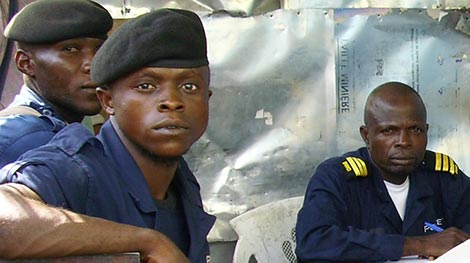 Until recently, police officers in Kimbasneke, Democratic Republic of the Congo (DRC), investigated case files at a music bar or other public space because they didn't have office space. When it rained, they carried the papers under their shirts to preserve the files.
Learn more »
Until recently, police officers in Kimbasneke, Democratic Republic of the Congo (DRC), investigated case files at a music bar or other public space because they didn't have office space. When it rained, they carried the papers under their shirts to preserve the files.
Learn more »
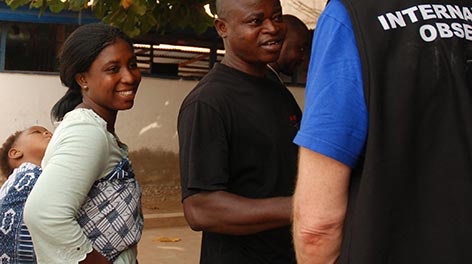 As the sun rose on Ghana's second election day in two weeks, Alice Appoh had already stood in line for hours to wait for voting to begin, her two-year-old child sound asleep on her back.
Learn more »
As the sun rose on Ghana's second election day in two weeks, Alice Appoh had already stood in line for hours to wait for voting to begin, her two-year-old child sound asleep on her back.
Learn more »
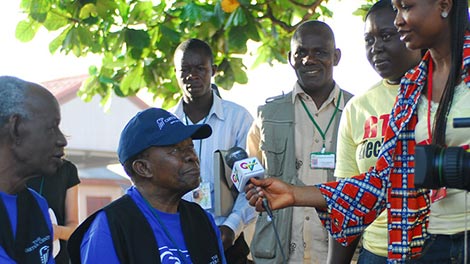 More than 50 Carter Center observers witnessed Ghana's Dec. 7 elections, the results of which will determine the country's next president and parliament.
Learn more »
More than 50 Carter Center observers witnessed Ghana's Dec. 7 elections, the results of which will determine the country's next president and parliament.
Learn more »
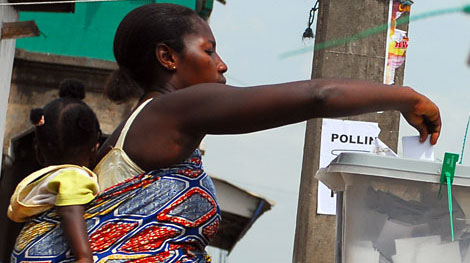 Fifty–seven Carter Center observers witnessed Ghana's Dec. 7, 2008, presidential and parliamentary elections. Overall, the Center’s observers visited more than 300 polling stations on election day, witnessing the opening, voting, and closing of voting across the country.
Learn more »
Fifty–seven Carter Center observers witnessed Ghana's Dec. 7, 2008, presidential and parliamentary elections. Overall, the Center’s observers visited more than 300 polling stations on election day, witnessing the opening, voting, and closing of voting across the country.
Learn more »
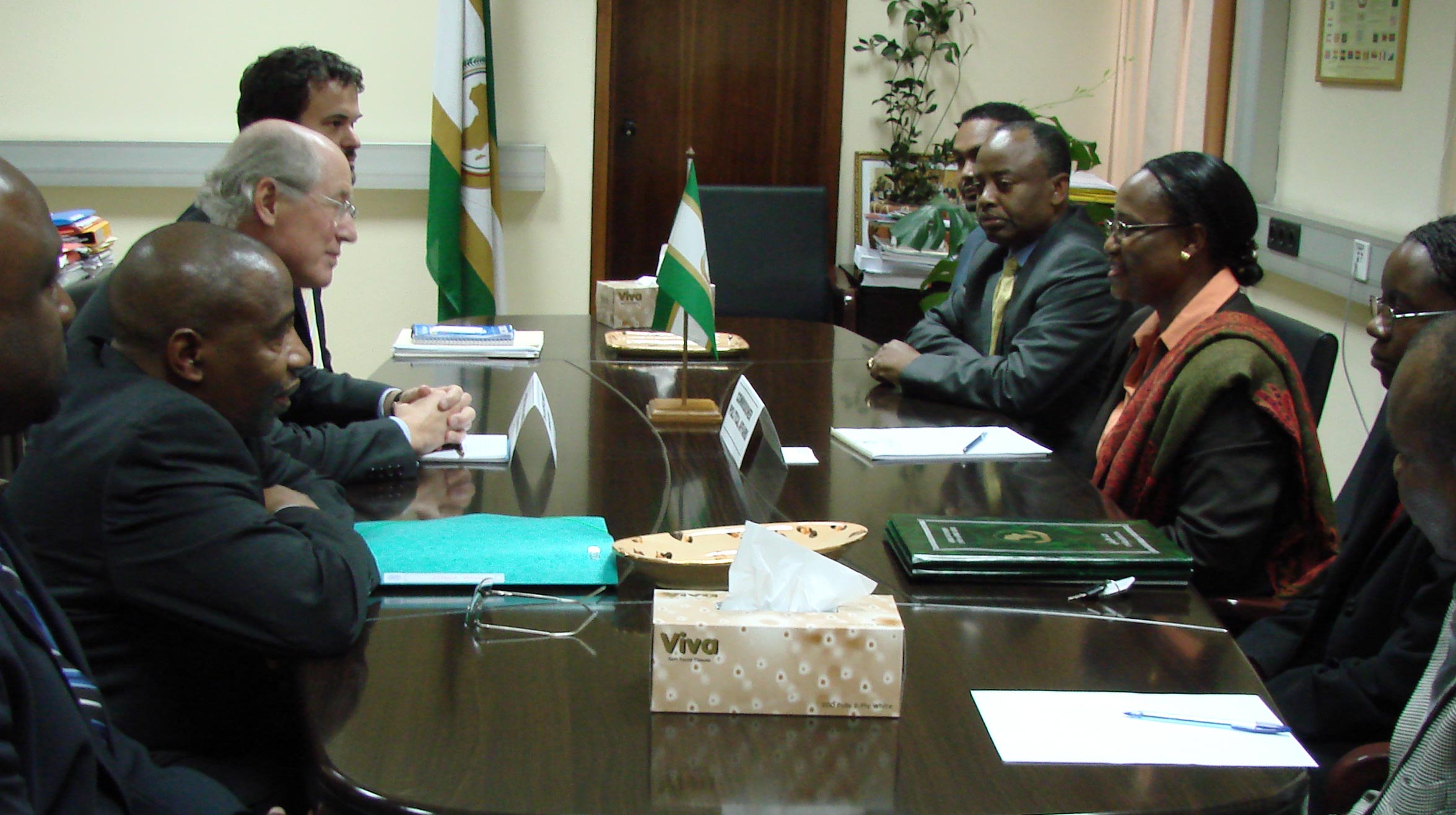 The Carter Center and the African Union (AU) signed a Memorandum of Understanding (MOU) on July 29, 2008, at the AU Commission in Addis Ababa, Ethiopia. The MOU will enable the Center to work closely with the AU in areas such as election monitoring, human rights, and strengthening democracies. Carter Center Vice-President for Peace Programs John Stremlau signed on behalf of The Carter Center while Department of Political Affairs Commissioner Julie Joiner signed on behalf of AU Commission Chairperson H.E. Jean Ping.
Learn more »
The Carter Center and the African Union (AU) signed a Memorandum of Understanding (MOU) on July 29, 2008, at the AU Commission in Addis Ababa, Ethiopia. The MOU will enable the Center to work closely with the AU in areas such as election monitoring, human rights, and strengthening democracies. Carter Center Vice-President for Peace Programs John Stremlau signed on behalf of The Carter Center while Department of Political Affairs Commissioner Julie Joiner signed on behalf of AU Commission Chairperson H.E. Jean Ping.
Learn more »
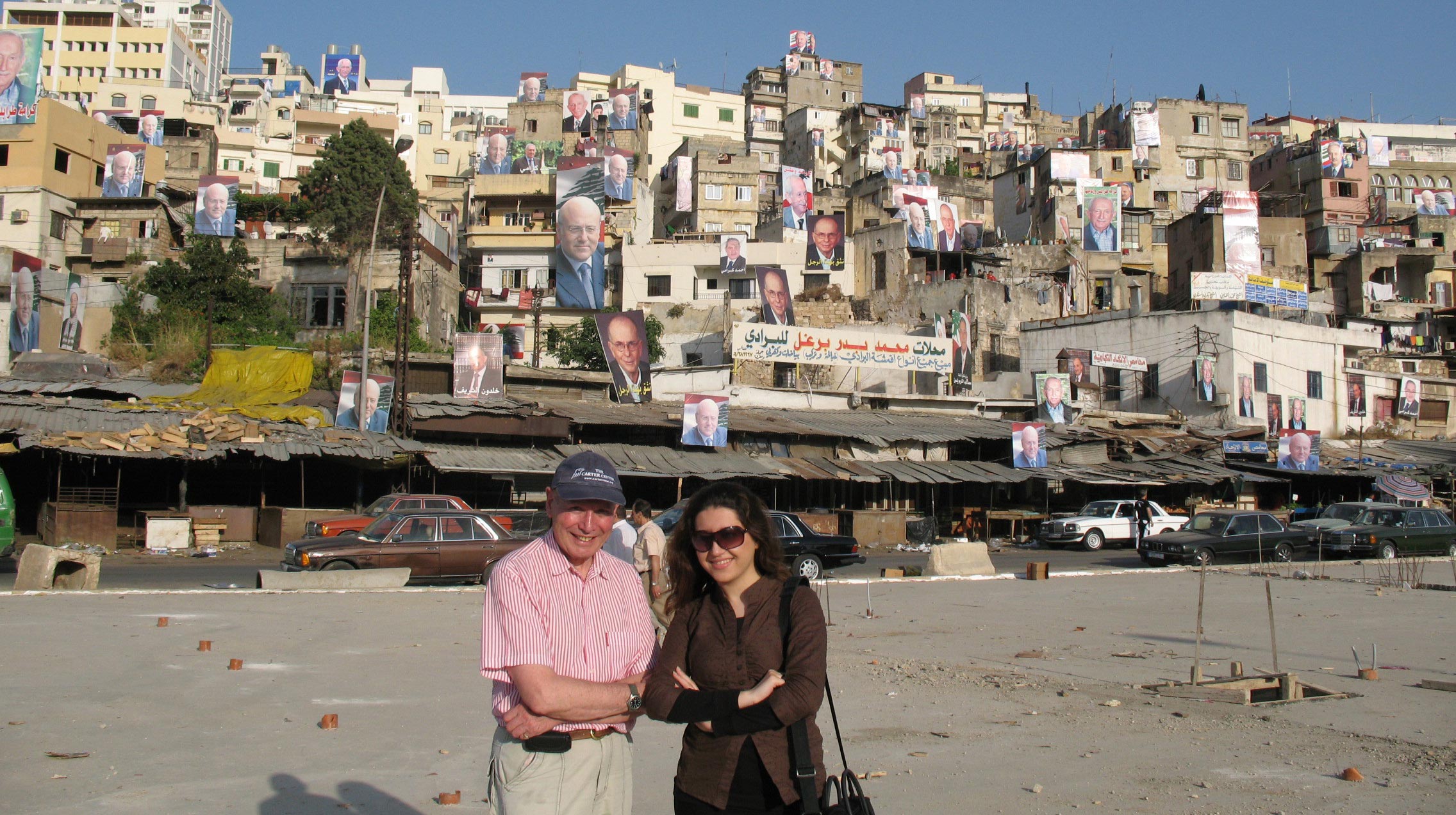 Roger Bryant is a long-term observer in the Carter Center's election observation mission in Lebanon. After a career in the British Navy, Roger worked with the Organization for Security and Co-operation in Europe (OSCE) mission to Bosnia-Herzegovina for a number of years before becoming involved in election work abroad as administrator and then as a long-term observer. Roger was a member of the Carter Center's observation mission to Nepal in 2007-8.
Learn more »
Roger Bryant is a long-term observer in the Carter Center's election observation mission in Lebanon. After a career in the British Navy, Roger worked with the Organization for Security and Co-operation in Europe (OSCE) mission to Bosnia-Herzegovina for a number of years before becoming involved in election work abroad as administrator and then as a long-term observer. Roger was a member of the Carter Center's observation mission to Nepal in 2007-8.
Learn more »
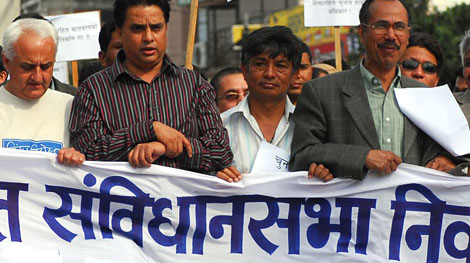 The Carter Center’s international election observation delegation to Nepal’s April 10, 2008, elections, led by former U.S. President Jimmy Carter, former First Lady Rosalynn Carter, and Dr. Surakiart Sathirathai, former deputy prime minister of Thailand, included 62 observers from more than 20 nations.
Learn more »
The Carter Center’s international election observation delegation to Nepal’s April 10, 2008, elections, led by former U.S. President Jimmy Carter, former First Lady Rosalynn Carter, and Dr. Surakiart Sathirathai, former deputy prime minister of Thailand, included 62 observers from more than 20 nations.
Learn more »
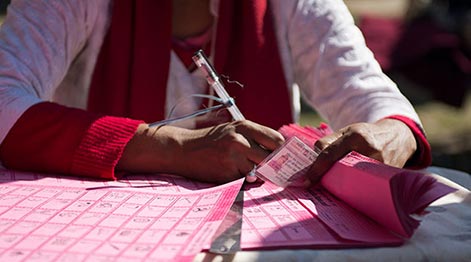 Carter Center election observers witnessed a historic vote in Nepal on April 10 creating a constituent assembly to draft a new constitution for the country that will likely abolish the 240-year-old monarchy.
Learn more »
Carter Center election observers witnessed a historic vote in Nepal on April 10 creating a constituent assembly to draft a new constitution for the country that will likely abolish the 240-year-old monarchy.
Learn more »
The Carter Center and the African Union (AU) signed a Memorandum of Understanding (MOU) on July 29, 2008, at the AU Commission in Addis Ababa, Ethiopia. The MOU will enable the Center to work closely with the AU in areas such as election monitoring, human rights, and strengthening democracies. Learn more »
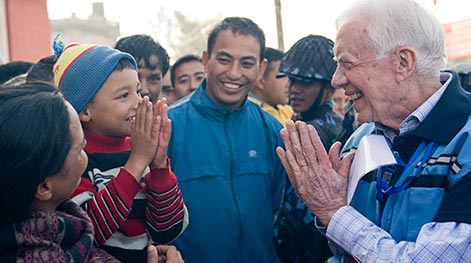 Former U.S. President Jimmy Carter and former First Lady Rosalynn Carter led the Carter Center's international election observation delegation to Nepal's historic constituent assembly elections, co-led by Dr. Surakiart Sathirathai, former deputy prime minister of Thailand.
Learn more »
Former U.S. President Jimmy Carter and former First Lady Rosalynn Carter led the Carter Center's international election observation delegation to Nepal's historic constituent assembly elections, co-led by Dr. Surakiart Sathirathai, former deputy prime minister of Thailand.
Learn more »
The constituent assembly election is a central feature of Nepal’s ongoing peace process and was agreed to by all parties in the Nov. 21, 2006, Comprehensive Peace Accord. The elections will create a representative body charged with drafting a new constitution for Nepal and give the people of Nepal their first opportunity to speak out and express their views on the future direction of the country. Learn more »
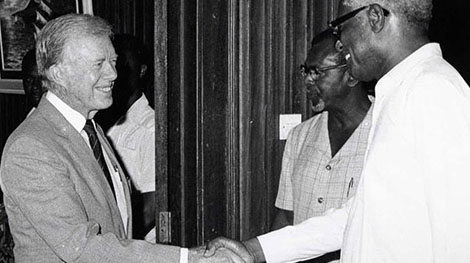 In 2007, former U.S. President Jimmy Carter wrote "Beyond the White House," about his post-presidency work with The Carter Center. In it, he reflected on a number of election observation missions, including the Center's first to Guyana, in 1992. An excerpt from the book, published by Simon and Schuster, is reprinted here.
Learn more »
In 2007, former U.S. President Jimmy Carter wrote "Beyond the White House," about his post-presidency work with The Carter Center. In it, he reflected on a number of election observation missions, including the Center's first to Guyana, in 1992. An excerpt from the book, published by Simon and Schuster, is reprinted here.
Learn more »
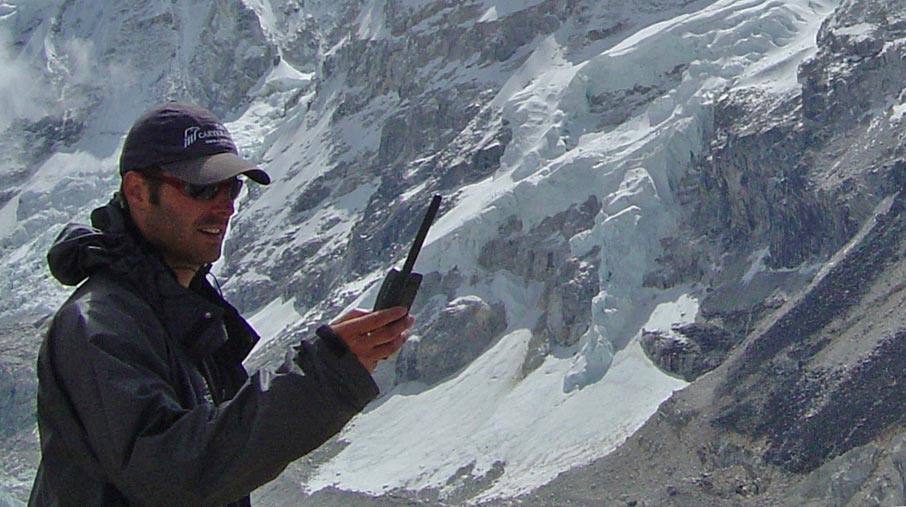 Nepal has undergone tremendous changes in the past year. A 2006 peace agreement ended a decade of fighting between government forces and the Maoists, and the country's king gave up all power other than his ceremonial status.
Learn more »
Nepal has undergone tremendous changes in the past year. A 2006 peace agreement ended a decade of fighting between government forces and the Maoists, and the country's king gave up all power other than his ceremonial status.
Learn more »
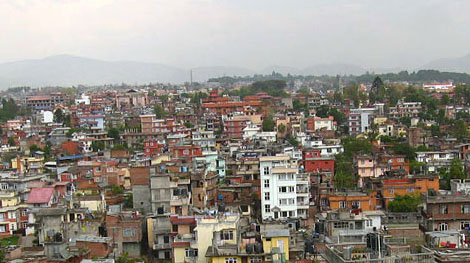 The Carter Center observed Nepal’s constituent assembly elections, which were delayed from the scheduled Nov. 22, 2007, date. The Center’s long-term observers (LTOs) have been deployed throughout the country since March 2007. Currently the only international observation mission in Nepal, the Center’s well–established reputation for professional and impartial observation enables it to gather a wide range of information from diverse actors.
Learn more »
The Carter Center observed Nepal’s constituent assembly elections, which were delayed from the scheduled Nov. 22, 2007, date. The Center’s long-term observers (LTOs) have been deployed throughout the country since March 2007. Currently the only international observation mission in Nepal, the Center’s well–established reputation for professional and impartial observation enables it to gather a wide range of information from diverse actors.
Learn more »
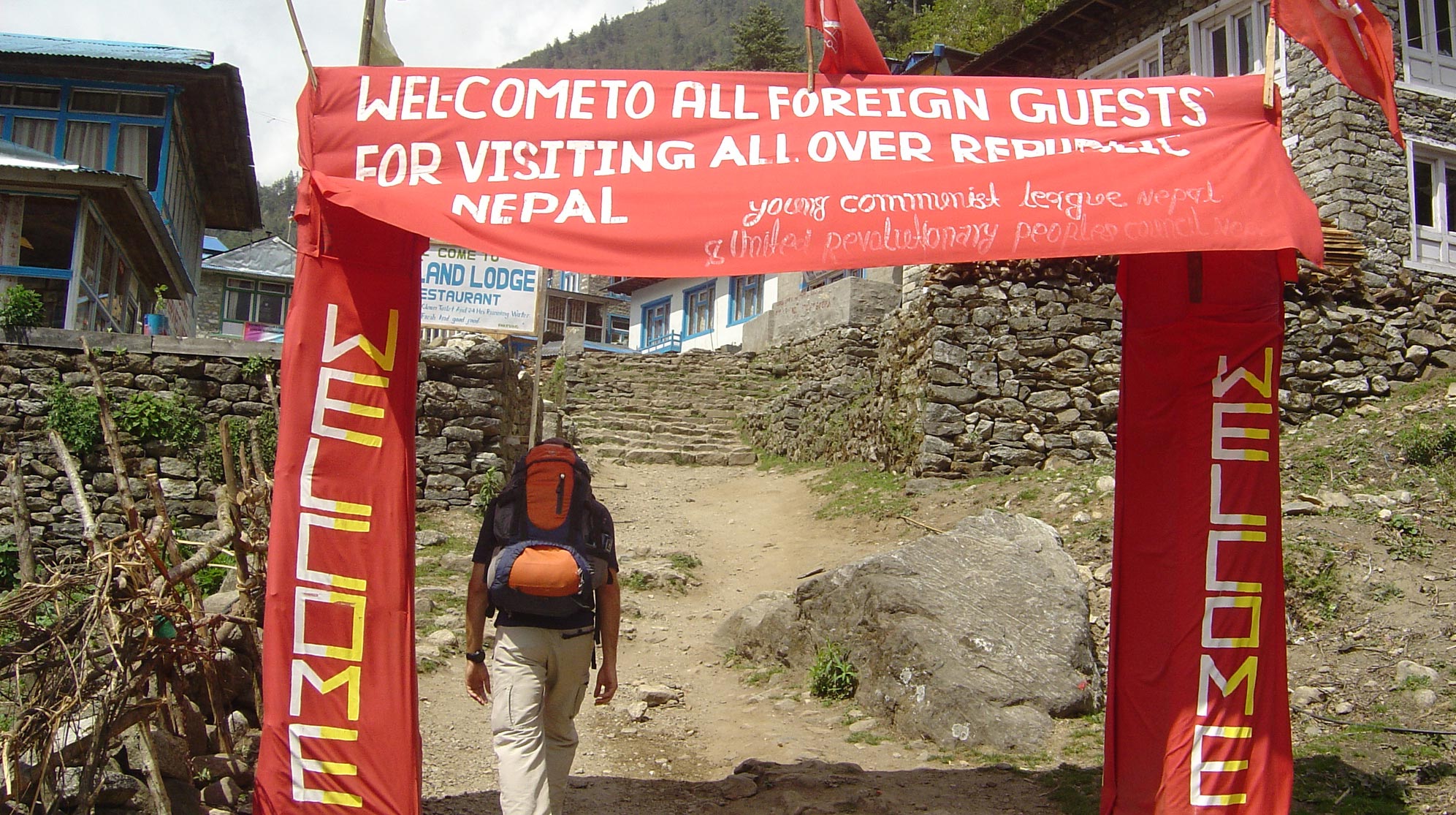 Jason Katz is a long-term observer (LTO) for the Carter Center's election observation mission in Nepal. Katz previously worked at the National Democratic Institute for International Affairs in Washington, D.C., and served as an election monitor during both rounds of elections in Peru in 2001.
Learn more »
Jason Katz is a long-term observer (LTO) for the Carter Center's election observation mission in Nepal. Katz previously worked at the National Democratic Institute for International Affairs in Washington, D.C., and served as an election monitor during both rounds of elections in Peru in 2001.
Learn more »
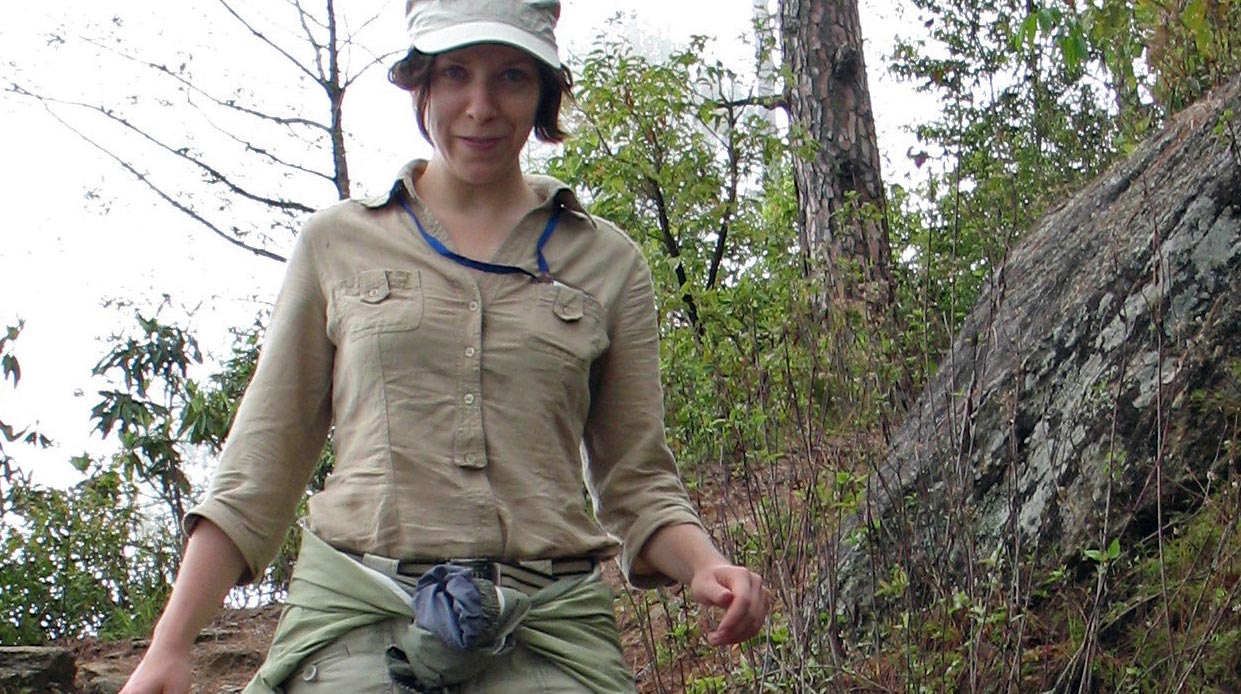 Stefanie Gross was a long-term observer (LTO) for the Carter Center's election observation mission in Nepal from March-December 2007, and wrote her reflections during this time. Originally from Germany, Stefanie completed her undergraduate degree in political studies and her postgraduate degree in conflict resolution in the United Kingdom before interning at The Carter Center in 2006.
Learn more »
Stefanie Gross was a long-term observer (LTO) for the Carter Center's election observation mission in Nepal from March-December 2007, and wrote her reflections during this time. Originally from Germany, Stefanie completed her undergraduate degree in political studies and her postgraduate degree in conflict resolution in the United Kingdom before interning at The Carter Center in 2006.
Learn more »
In the following Q&A, panel members from “Two Palestines? What is Risked by a ‘West Bank First’ Policy?” held at The Carter Center in July 2007, answer audience questions that remained following the event. Learn more »
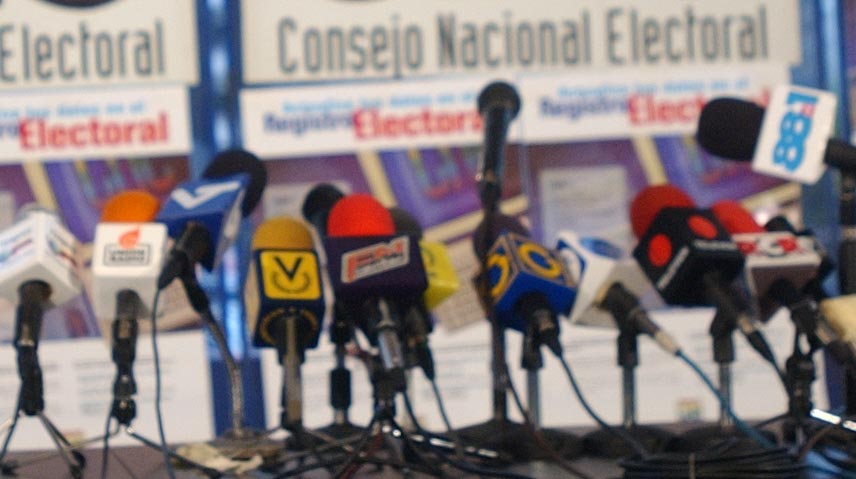 President Chávez announced that he would deepen the Bolivarian Revolution and establish "21st century socialism." He draws on Simón Bolívar's 19th century ideas of South American integration, and on a new approach to socialism based on a mixed economy with majority state control, distribution of oil revenues, worker participation in businesses, and greater popular participation in political decision-making.
Learn more »
President Chávez announced that he would deepen the Bolivarian Revolution and establish "21st century socialism." He draws on Simón Bolívar's 19th century ideas of South American integration, and on a new approach to socialism based on a mixed economy with majority state control, distribution of oil revenues, worker participation in businesses, and greater popular participation in political decision-making.
Learn more »
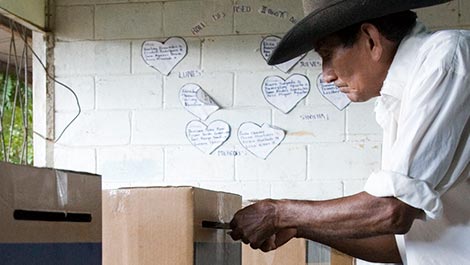 Final report of the Carter Center's election observation team on the 2006 Nicaragua elections. Held November 5, 2006, this was the fourth national election in Nicaragua observed by The Carter Center since 1990.
Learn more »
Final report of the Carter Center's election observation team on the 2006 Nicaragua elections. Held November 5, 2006, this was the fourth national election in Nicaragua observed by The Carter Center since 1990.
Learn more »
When Liberia's first female president won in 2005, her opponent charged that the election results were tainted. But Carter Center Democracy Program Director David Carroll knew otherwise.> Learn more »
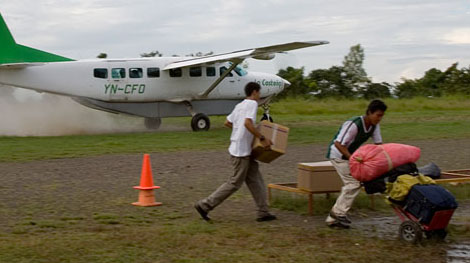 The Carter Center deployed a 62-member delegation to observe Nicaragua’s 2006 election. Carter Center observers David Evans and Sandra Flores, a French citizen, were based in Rio San Juan, which shares its river and border with Costa Rica. They arrived in the region via small plane on a muddy landing strip.
Learn more »
The Carter Center deployed a 62-member delegation to observe Nicaragua’s 2006 election. Carter Center observers David Evans and Sandra Flores, a French citizen, were based in Rio San Juan, which shares its river and border with Costa Rica. They arrived in the region via small plane on a muddy landing strip.
Learn more »
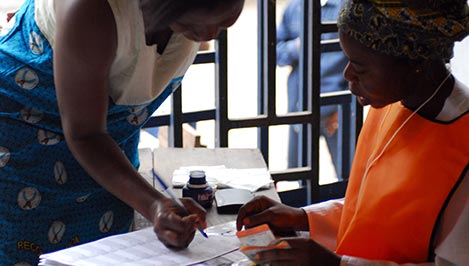 Kinshasa....A 45-member international Carter Center delegation led by former Prime Minister of Canada Joe Clark observed the Democratic Republic of the Congo's presidential runoff elections Oct. 29. Carter Center Peace Programs Associate Executive Director John Stremlau was co-leader of the delegation.
Learn more »
Kinshasa....A 45-member international Carter Center delegation led by former Prime Minister of Canada Joe Clark observed the Democratic Republic of the Congo's presidential runoff elections Oct. 29. Carter Center Peace Programs Associate Executive Director John Stremlau was co-leader of the delegation.
Learn more »
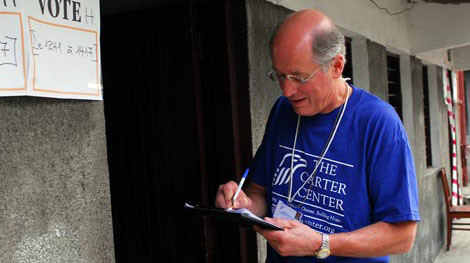 Dr. John Stremlau views the recent elections held in the Democratic Republic of the Congo as both triumphant and tragic. "It was quite moving to see the Congolese people turn out to vote," he said. "At the same time," he added, "it was depressing to see how the country and its people have suffered so greatly."
Learn more »
Dr. John Stremlau views the recent elections held in the Democratic Republic of the Congo as both triumphant and tragic. "It was quite moving to see the Congolese people turn out to vote," he said. "At the same time," he added, "it was depressing to see how the country and its people have suffered so greatly."
Learn more »
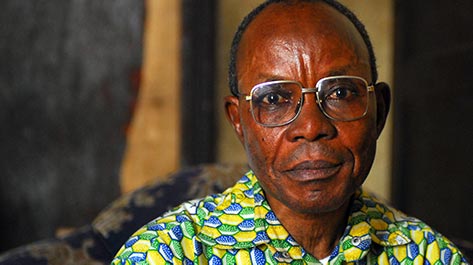 The afternoon sun catches Yayu Zonveni's face near the door of her otherwise shadowy home in Kinshasa, Democratic Republic of the Congo (DRC). She sits in a blue plastic chair waiting for customers to buy the soda and beer she sells from her house; 200 Congolese francs for a Coke, 400 for a beer. It takes her a day and a half to sell a case of 24 bottles, for which she receives a profit of 400 FC, or almost $1US.
Learn more »
The afternoon sun catches Yayu Zonveni's face near the door of her otherwise shadowy home in Kinshasa, Democratic Republic of the Congo (DRC). She sits in a blue plastic chair waiting for customers to buy the soda and beer she sells from her house; 200 Congolese francs for a Coke, 400 for a beer. It takes her a day and a half to sell a case of 24 bottles, for which she receives a profit of 400 FC, or almost $1US.
Learn more »
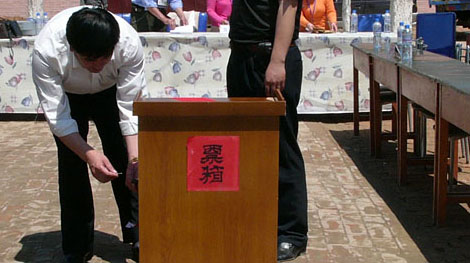 One of the most important democratic experiments of the last 25 years has been the movement in 600,000 villages across China toward competitive elections, allowing 75 percent of the nation's 1.3 billion people to elect their local leaders. The Carter Center has worked with the Chinese government to help standardize the vast array of election procedures taking place in this new democratic environment and to foster good local governance.
Learn more »
One of the most important democratic experiments of the last 25 years has been the movement in 600,000 villages across China toward competitive elections, allowing 75 percent of the nation's 1.3 billion people to elect their local leaders. The Carter Center has worked with the Chinese government to help standardize the vast array of election procedures taking place in this new democratic environment and to foster good local governance.
Learn more »
Former President Jimmy Carter will lead a team of 80 observers today in monitoring legislative elections in the Palestinian territories. The team hopes to provide “an impartial and accurate report” on elections that are as significant as they are controversial. One development that has raised eyebrows in the West: the political participation of Hamas, a group the United States considers a terrorist organization. Learn more »
Although election observation has existed for many decades, the end of the Cold War in the late 1980s triggered a dramatic expansion in the number of election observation missions. Hear from Carter Center's David Carroll who manages the Democracy Program's projects on election observation, civil society strengthening, and promotion of the rule of law. Learn more »
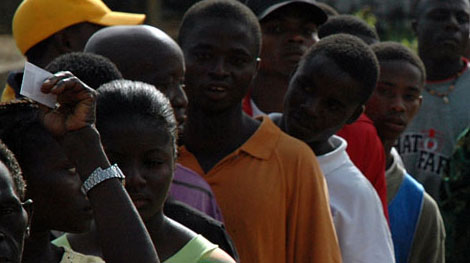 The Carter Center observed Liberia’s historic presidential and legislative elections on Oct. 11, 2005. Only two years earlier, Liberia had emerged from 14 years of civil warfare, which had left over a million people displaced and the country’s infrastructure destroyed. More than 1.3 million people registered to vote, which was estimated to be 90 percent of the eligible population.
Learn more »
The Carter Center observed Liberia’s historic presidential and legislative elections on Oct. 11, 2005. Only two years earlier, Liberia had emerged from 14 years of civil warfare, which had left over a million people displaced and the country’s infrastructure destroyed. More than 1.3 million people registered to vote, which was estimated to be 90 percent of the eligible population.
Learn more »
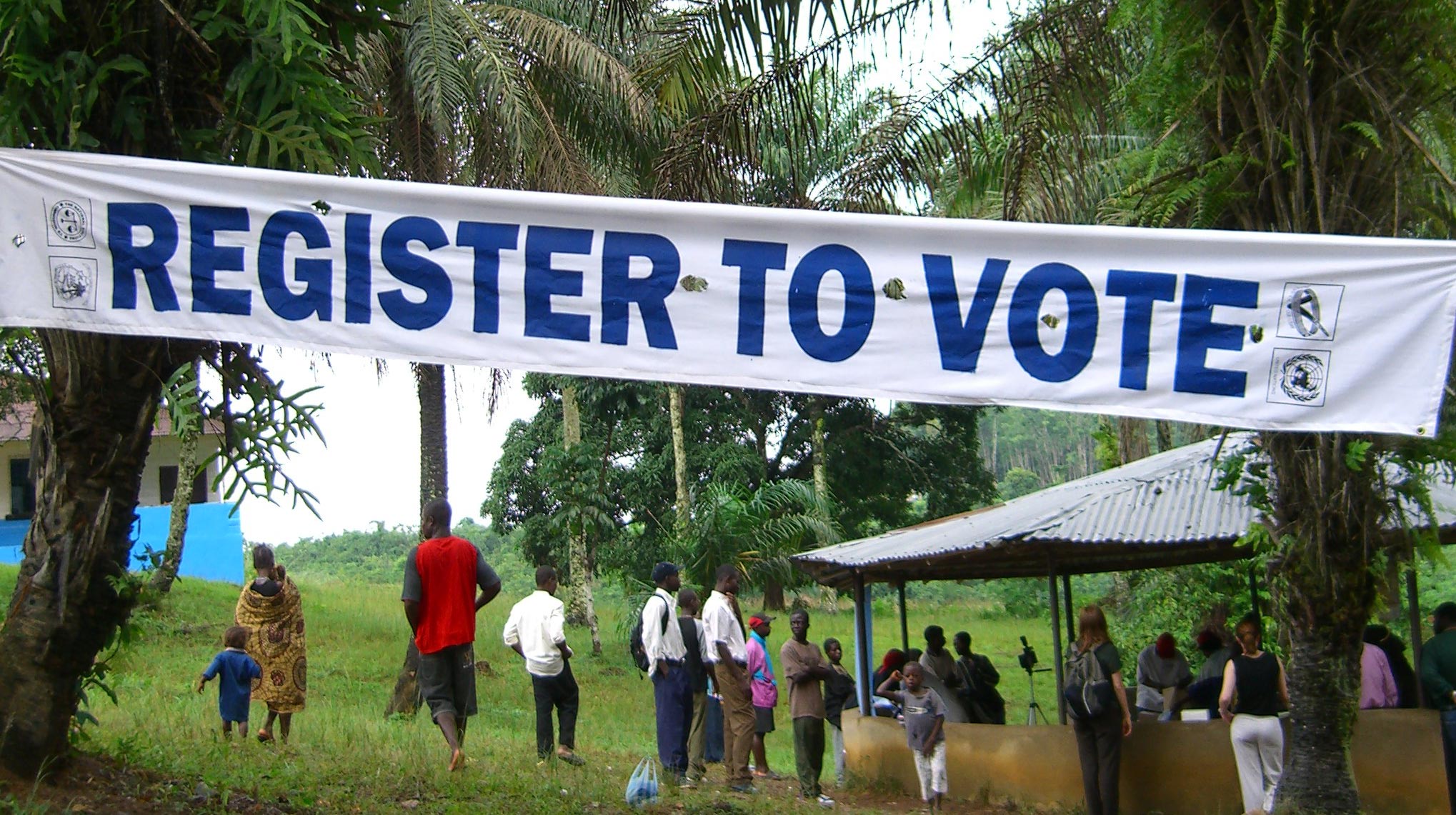 Liberians, their country devastated by years of civil war, head to the polls in October 2005 in the most promising opportunity the country will have to establish a fragile, post-conflict democracy. Liberia's destroyed infrastructure, pervasive poverty, 85 percent illiteracy rate, and bitter electoral history are compounding the challenges of providing civic education and making technical arrangements for the election process.
Learn more »
Liberians, their country devastated by years of civil war, head to the polls in October 2005 in the most promising opportunity the country will have to establish a fragile, post-conflict democracy. Liberia's destroyed infrastructure, pervasive poverty, 85 percent illiteracy rate, and bitter electoral history are compounding the challenges of providing civic education and making technical arrangements for the election process.
Learn more »
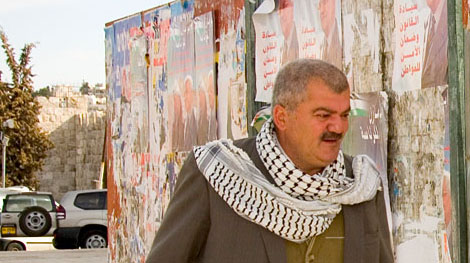 A Palestinian woman places her vote inside the ballot box. Despite a boycott by Hamas and impediments to voters, the turnout was about 65 percent, and there was no serious violence either by the Palestinians or Israelis.
Learn more »
A Palestinian woman places her vote inside the ballot box. Despite a boycott by Hamas and impediments to voters, the turnout was about 65 percent, and there was no serious violence either by the Palestinians or Israelis.
Learn more »
A Q&A with Dr. David Carroll, interim director of the Democracy Program, and Dr. Jennifer McCoy, director of the Americas Program on the 2004 U.S. Elections. Learn more »
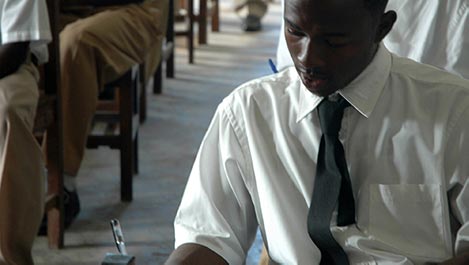 Looking across the many rows of wood-and-mud shacks that house more than 12,000 people in a camp for displaced persons in Margibi County, Liberia, Jacob Lablah knows he still has work to do.
Learn more »
Looking across the many rows of wood-and-mud shacks that house more than 12,000 people in a camp for displaced persons in Margibi County, Liberia, Jacob Lablah knows he still has work to do.
Learn more »
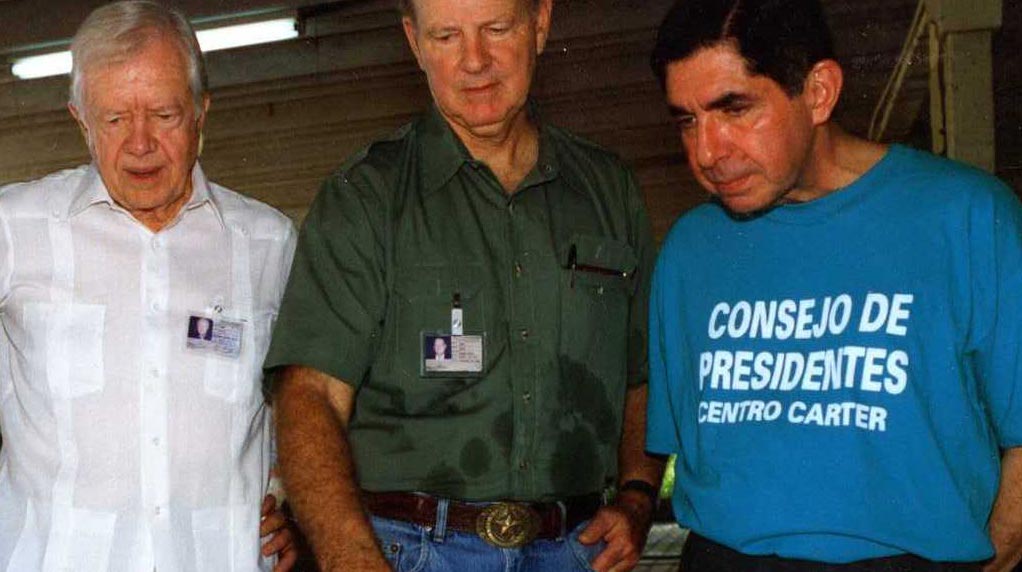 For 12 hours in November 2001, in Managua, Nicaragua, Oscar Arias Sanchez visited each polling station on his list, diligently noting voting procedures, listening to voters, and querying election officials. Having co-led the Center's 1996 Nicaragua election mission with President Carter and former U.S. Secretary of State James Baker, the responsibilities were both sacred and familiar to Arias, the former president of Costa Rica and author of a peace plan for Central America that earned him the Nobel Peace Prize in 1987.
Learn more »
For 12 hours in November 2001, in Managua, Nicaragua, Oscar Arias Sanchez visited each polling station on his list, diligently noting voting procedures, listening to voters, and querying election officials. Having co-led the Center's 1996 Nicaragua election mission with President Carter and former U.S. Secretary of State James Baker, the responsibilities were both sacred and familiar to Arias, the former president of Costa Rica and author of a peace plan for Central America that earned him the Nobel Peace Prize in 1987.
Learn more »
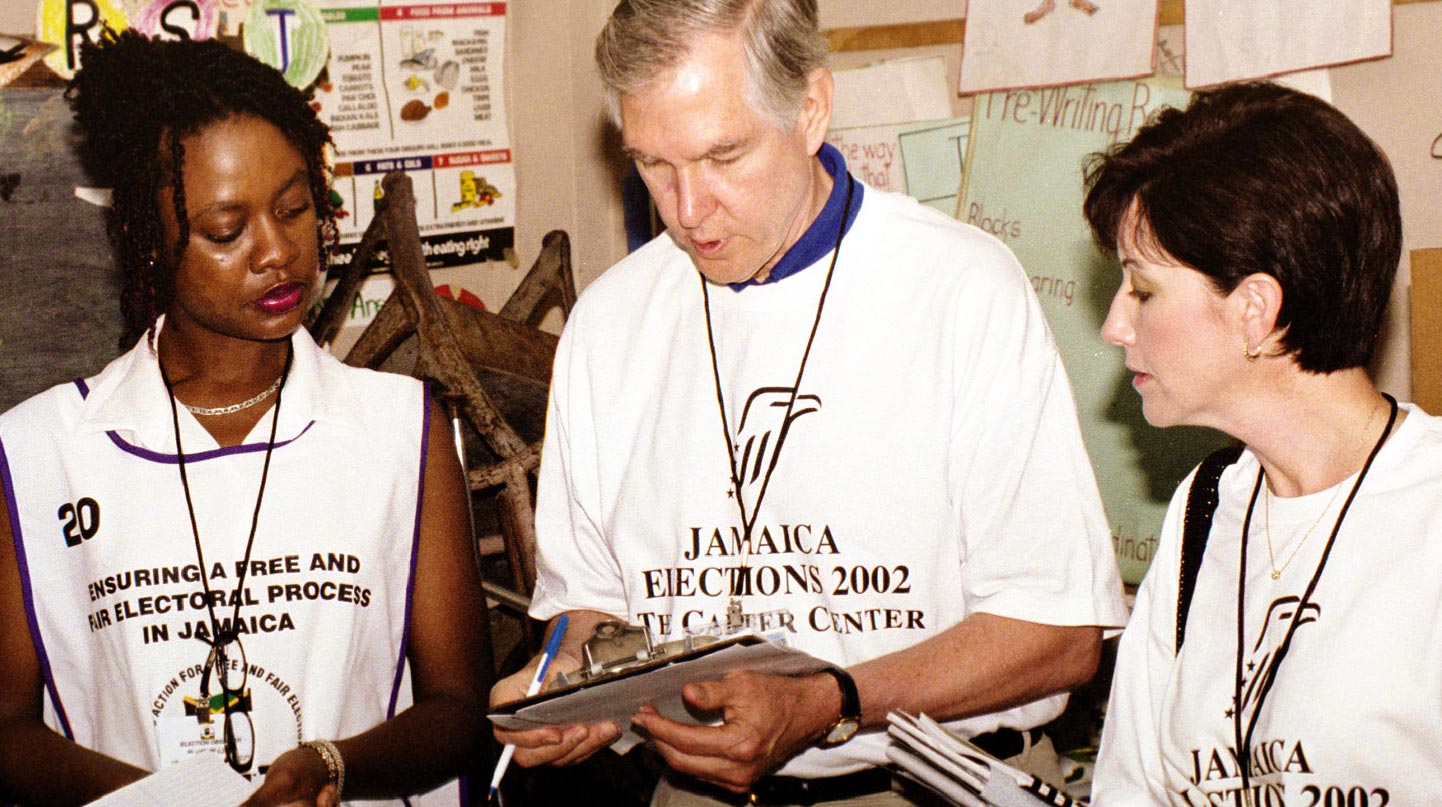 Helping to break the cycle of violence that has plagued previous elections in Jamaica, The Carter Center in October observed the island nation's second relatively peaceful election.
Learn more »
Helping to break the cycle of violence that has plagued previous elections in Jamaica, The Carter Center in October observed the island nation's second relatively peaceful election.
Learn more »